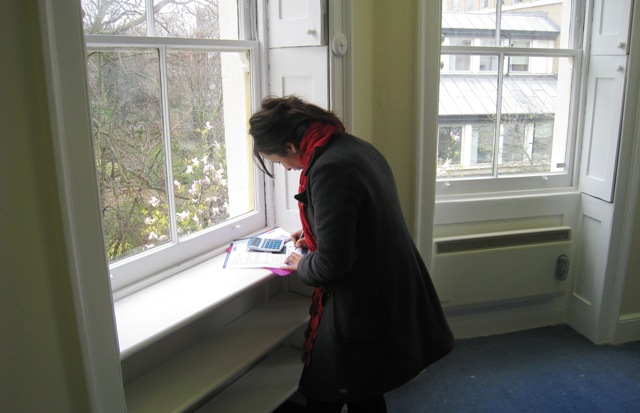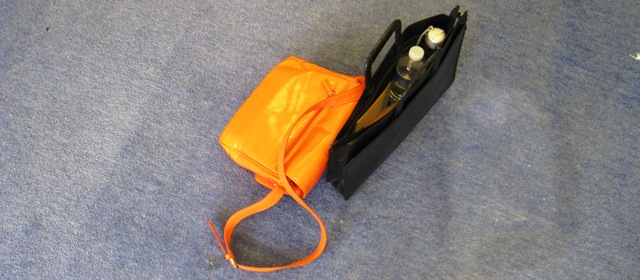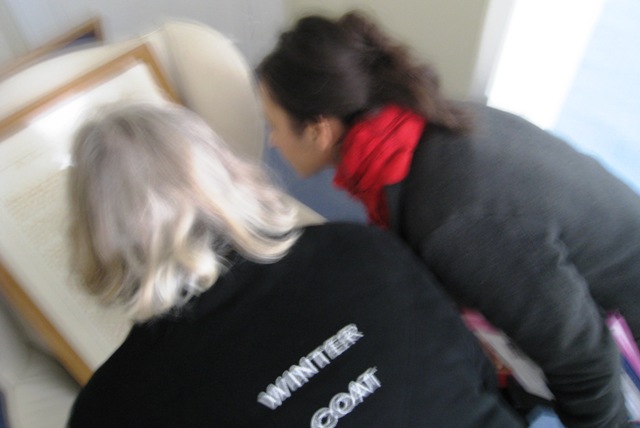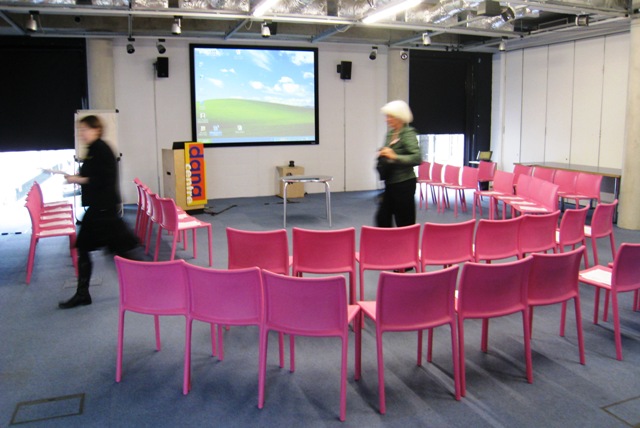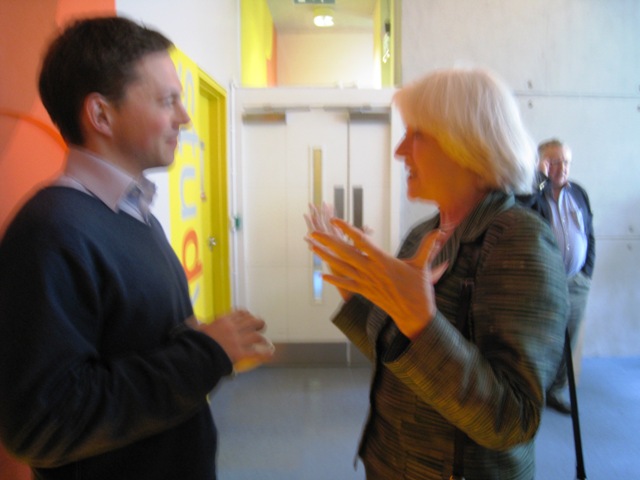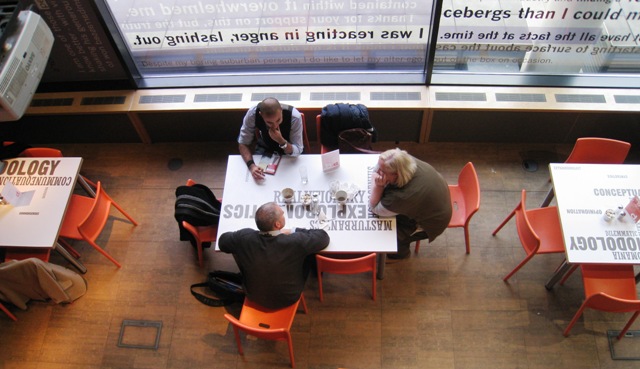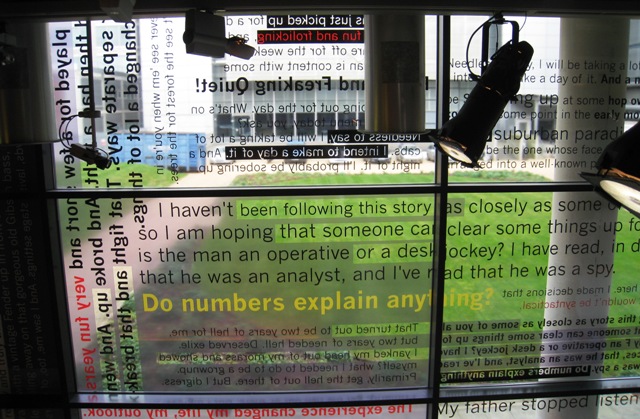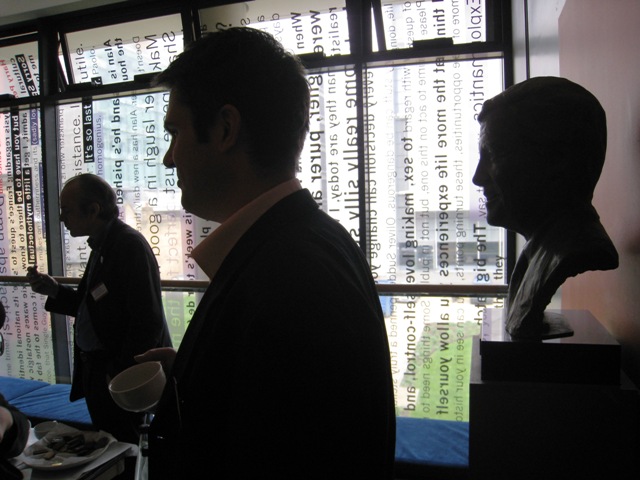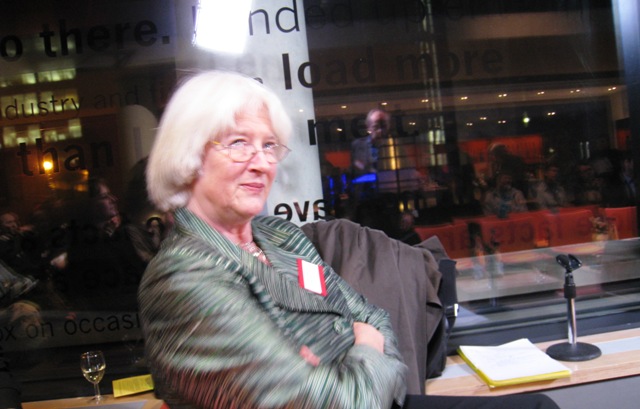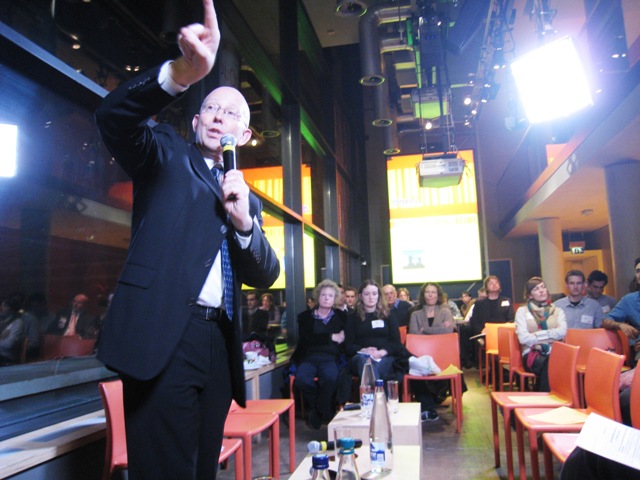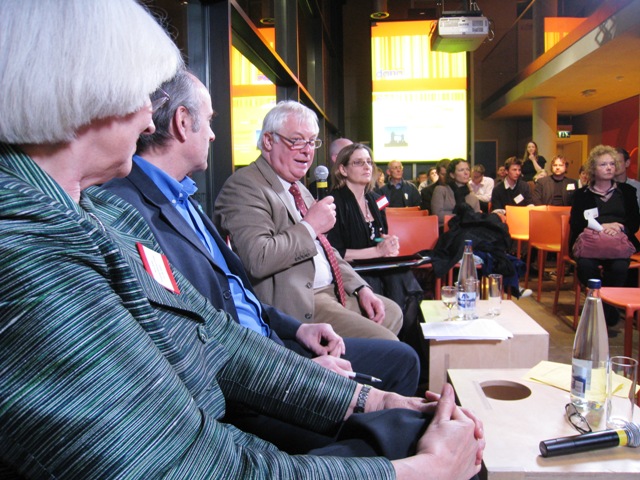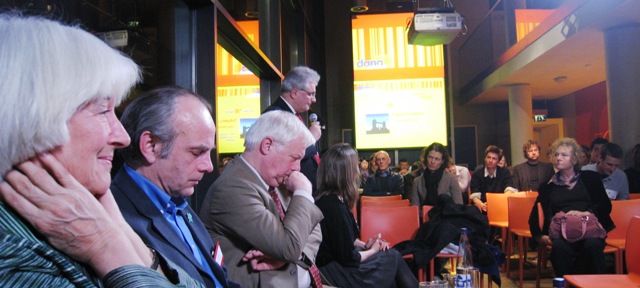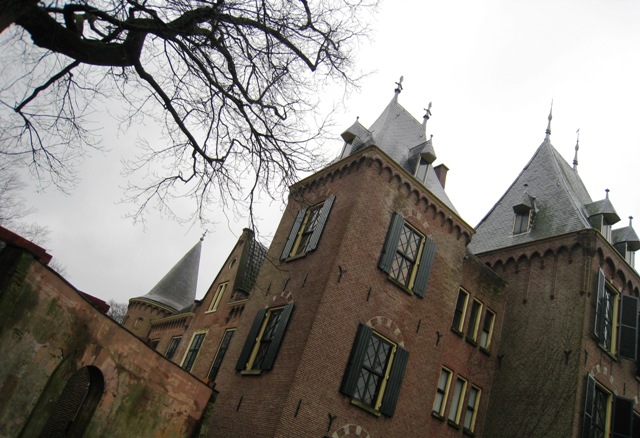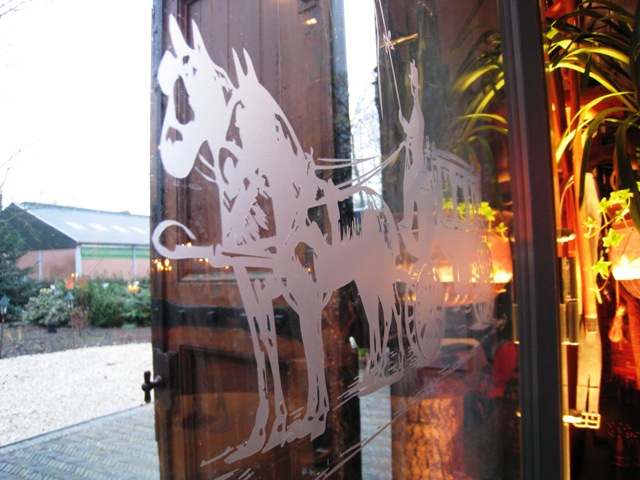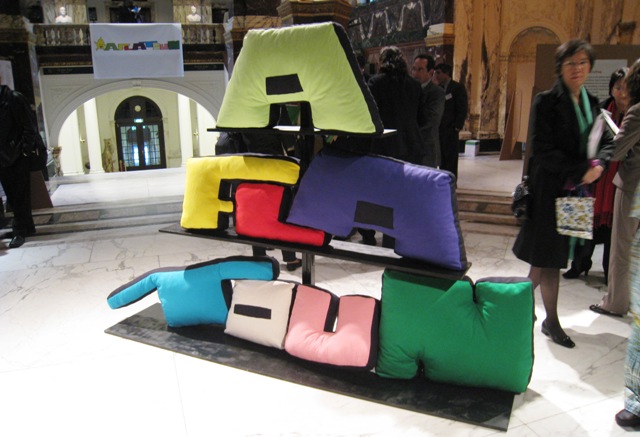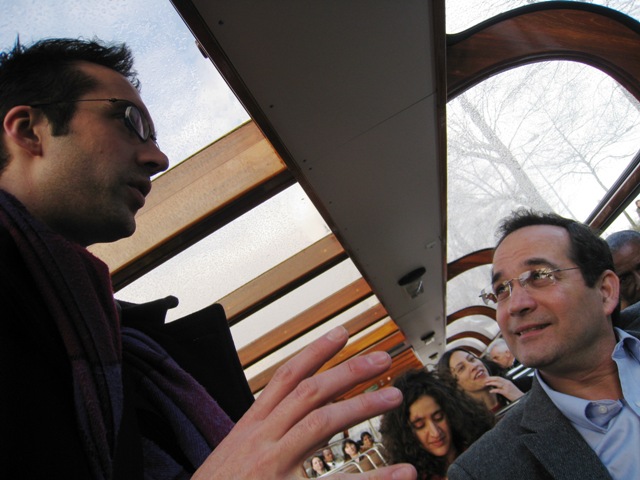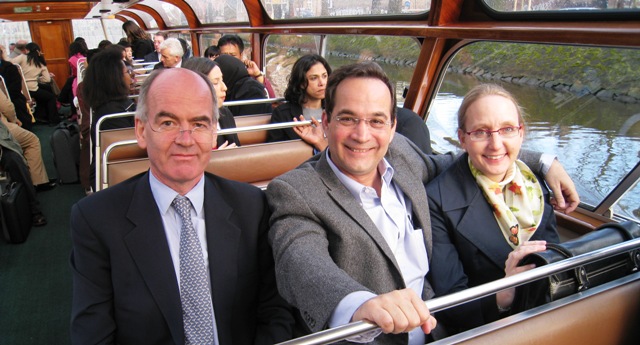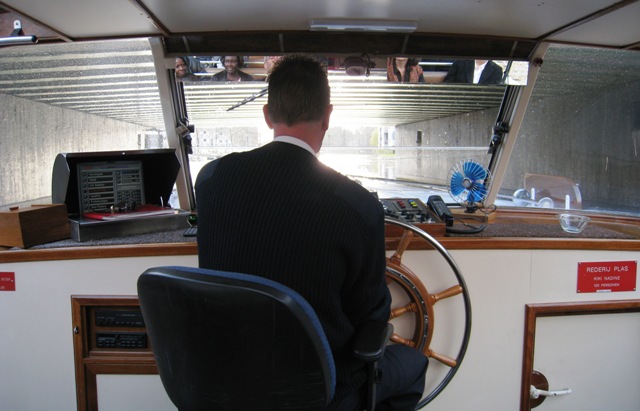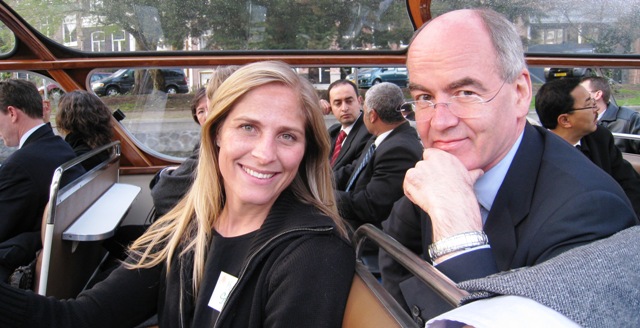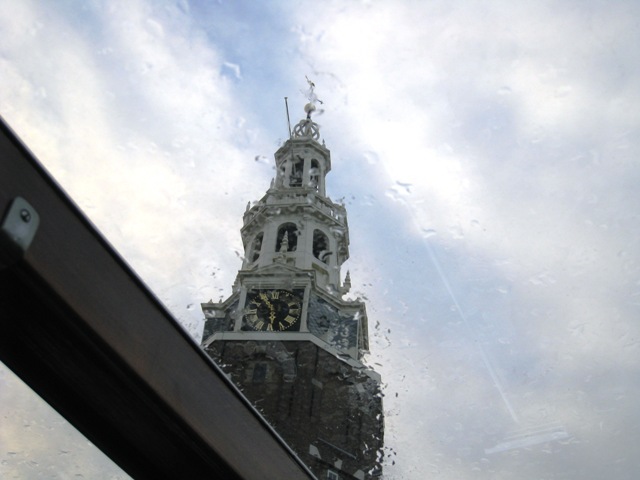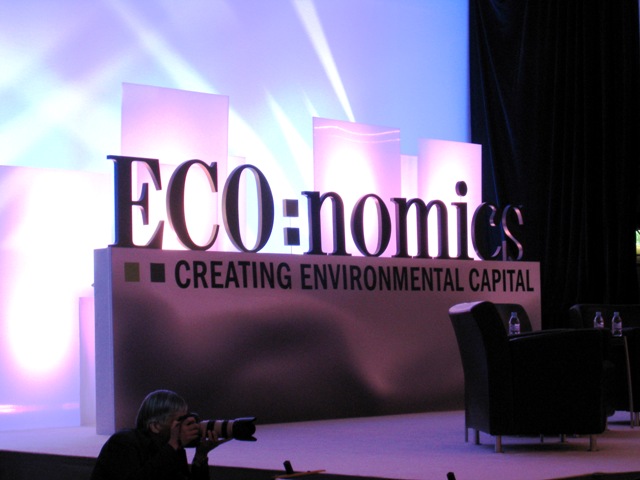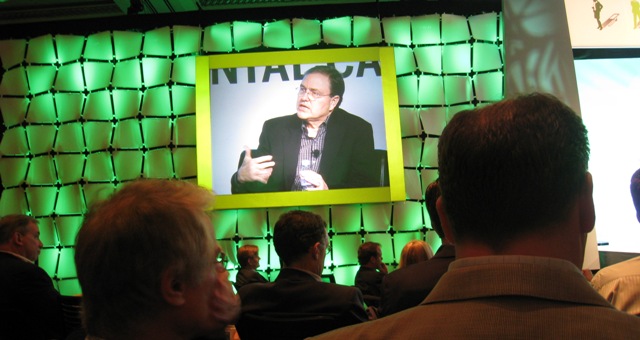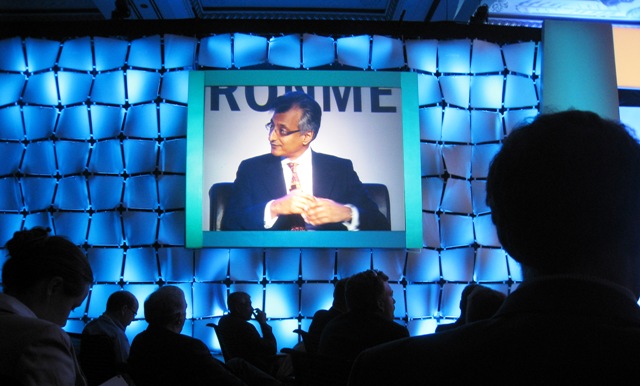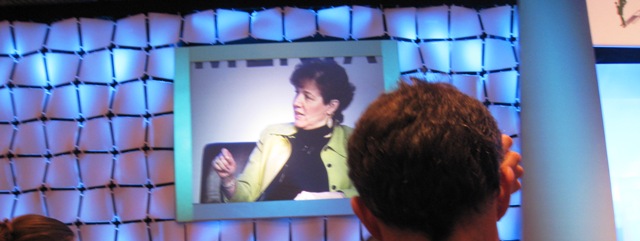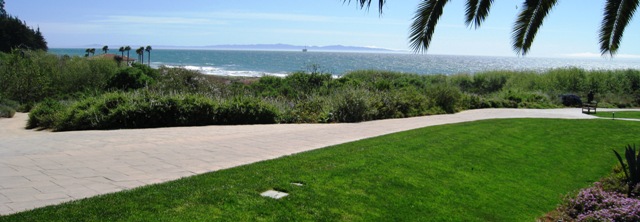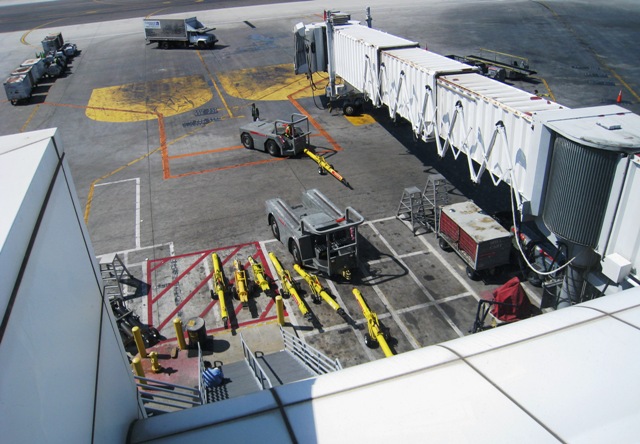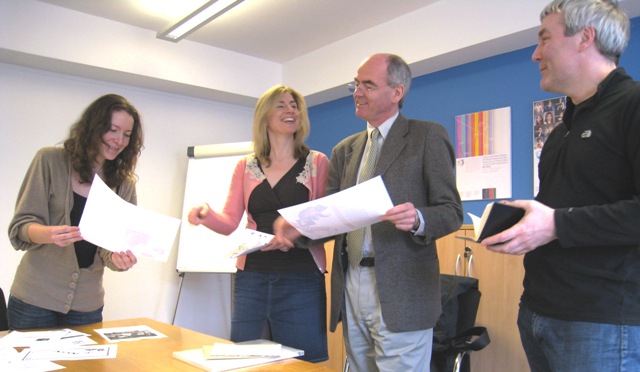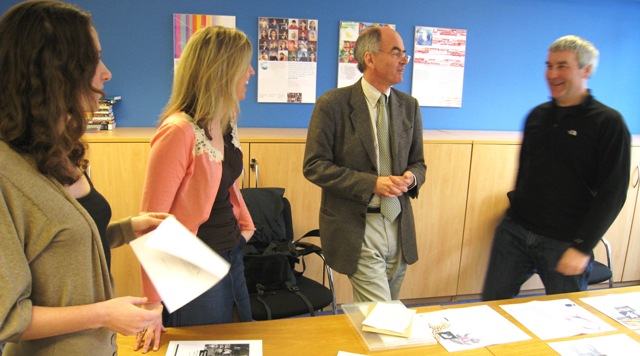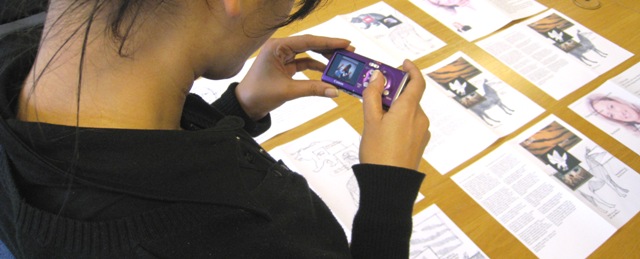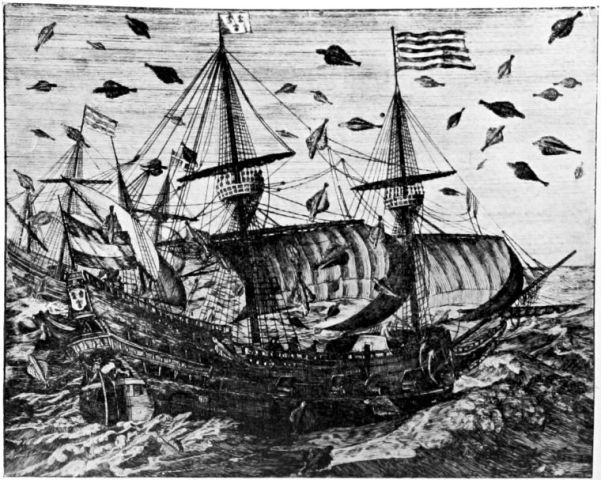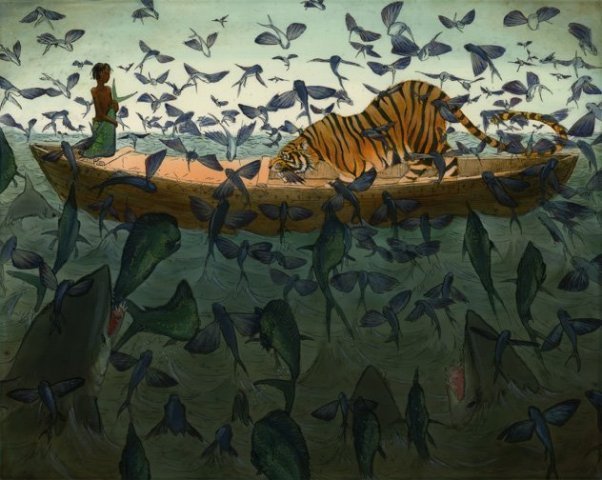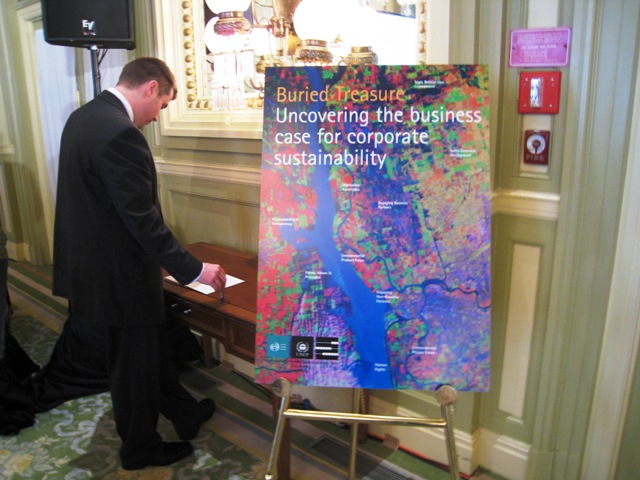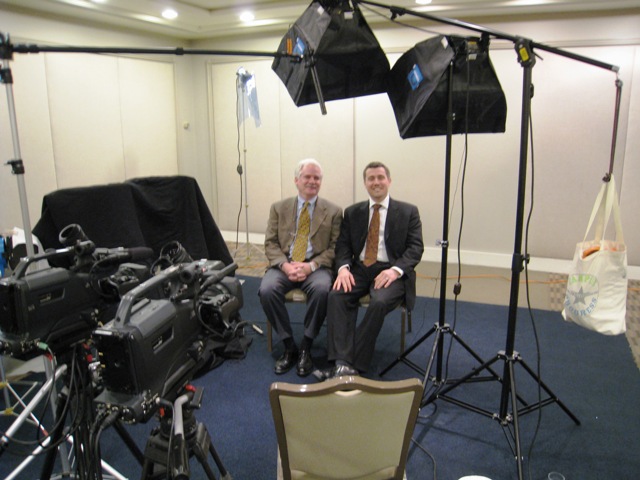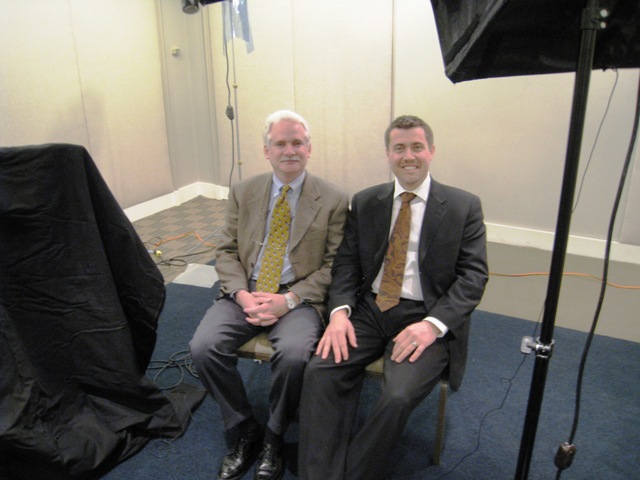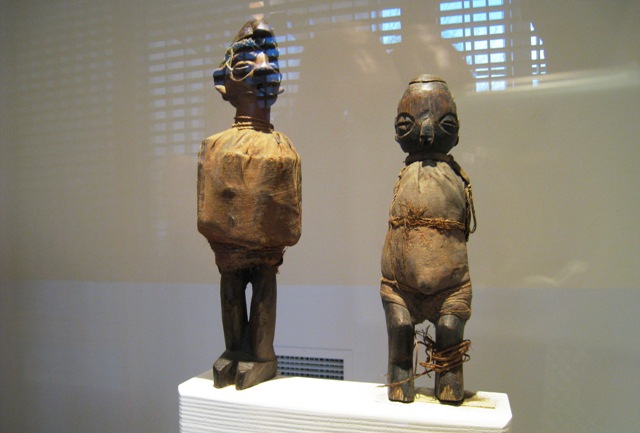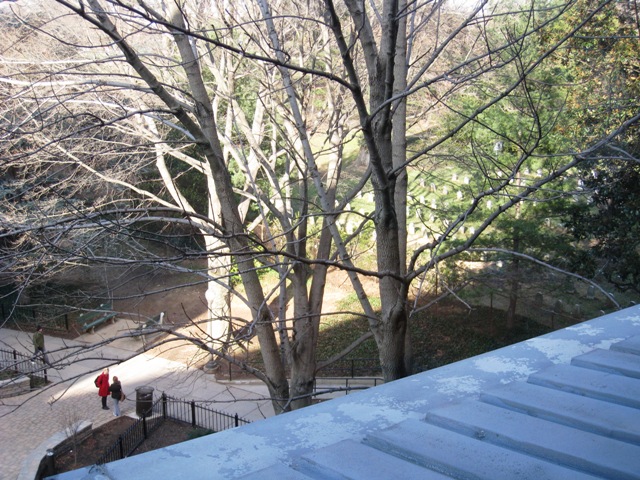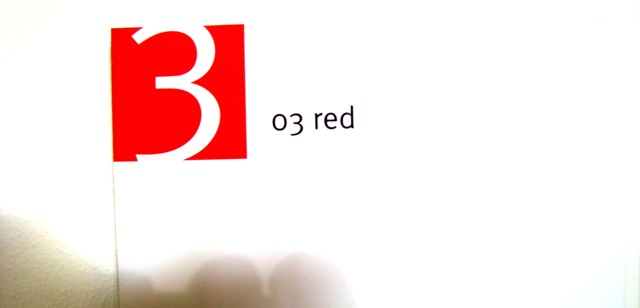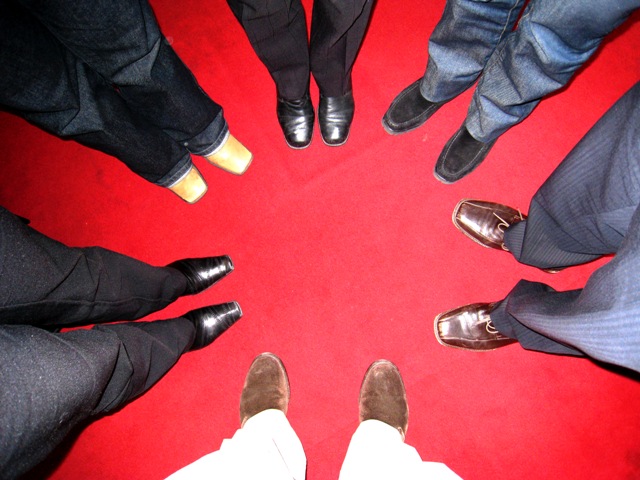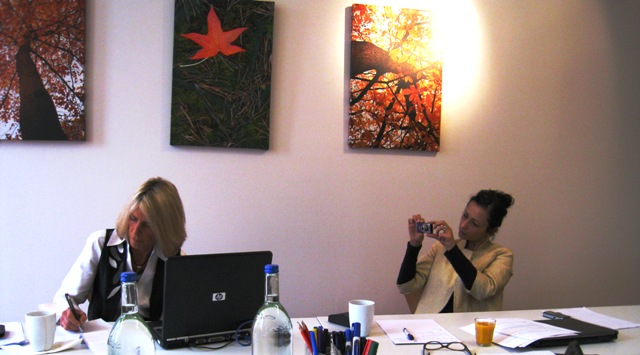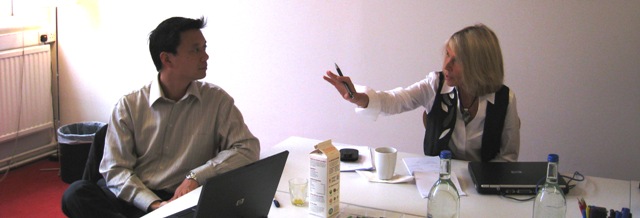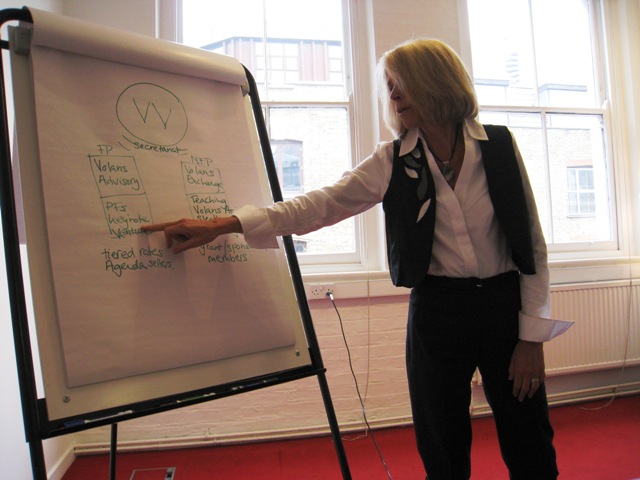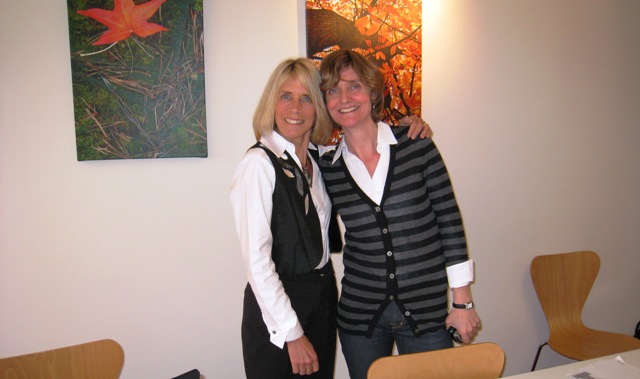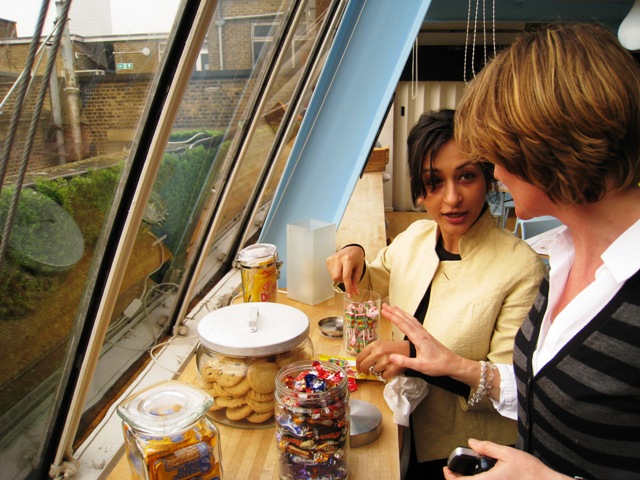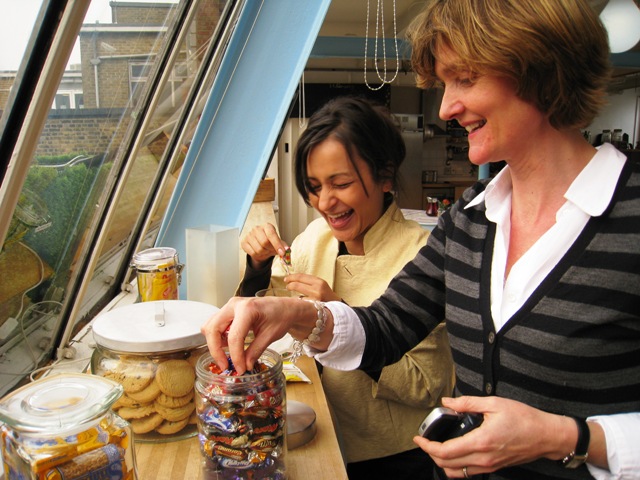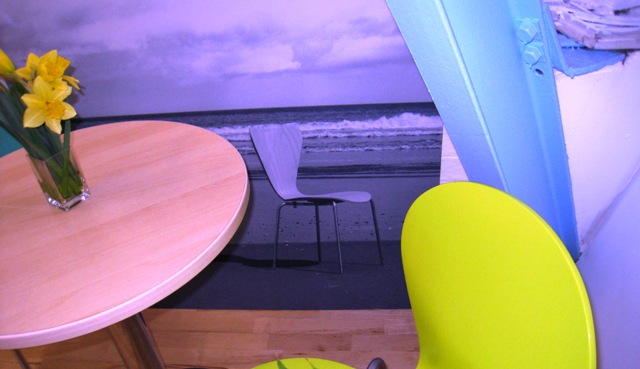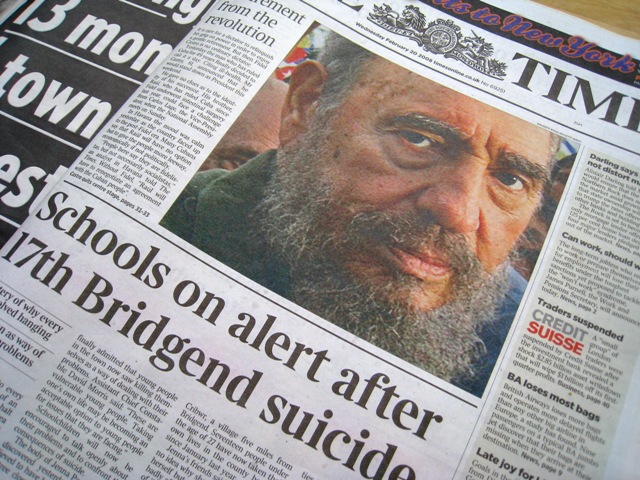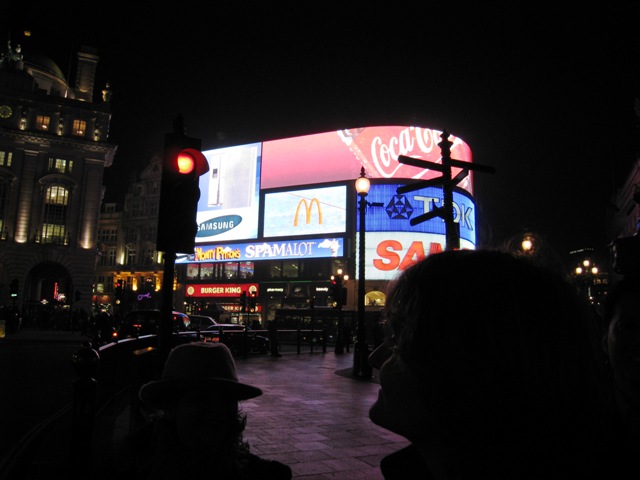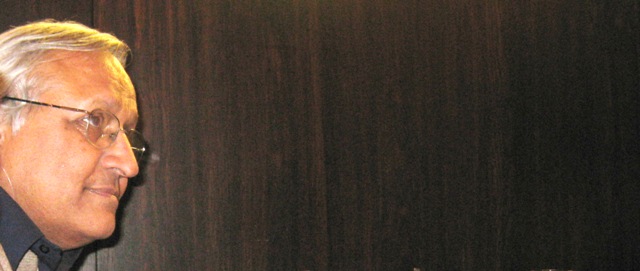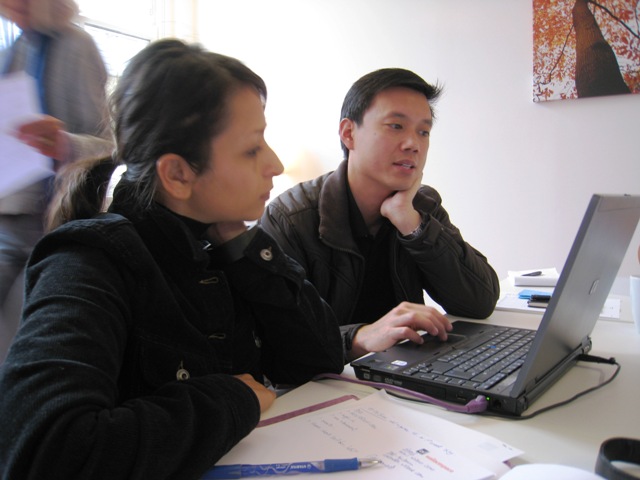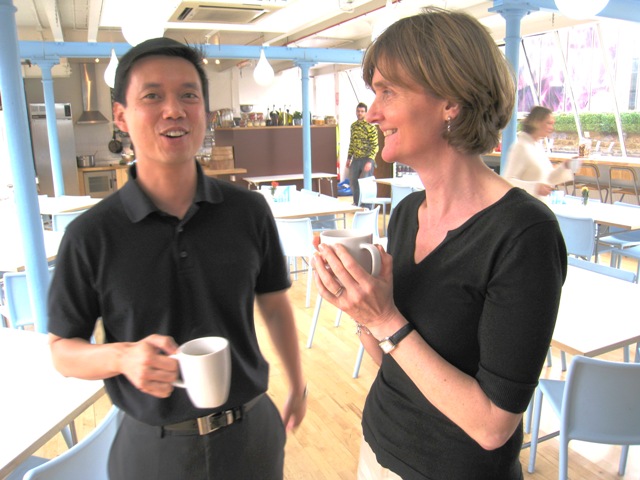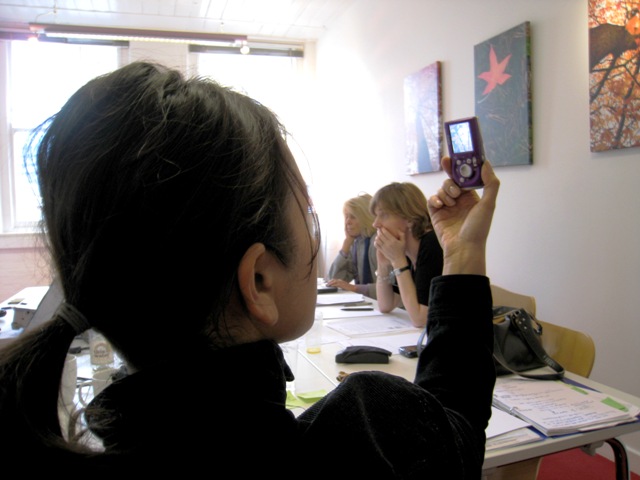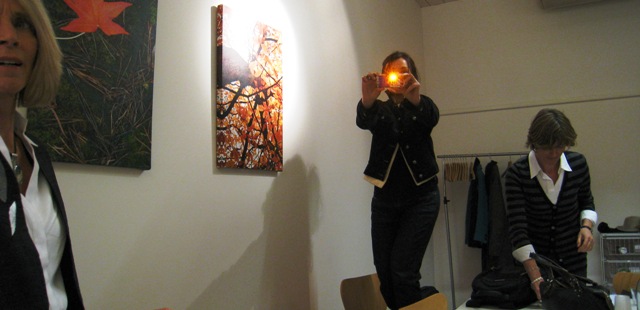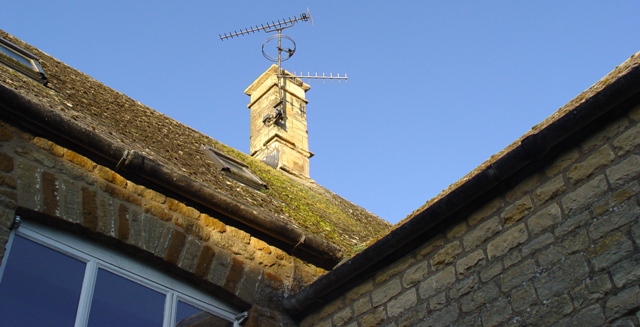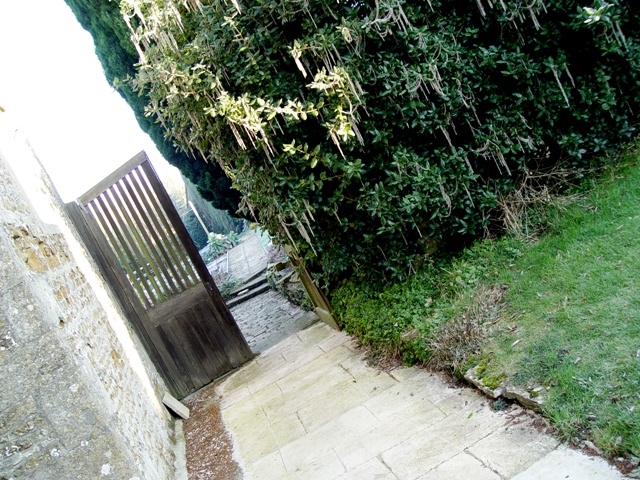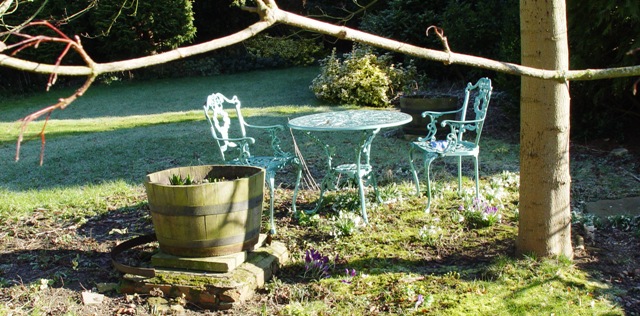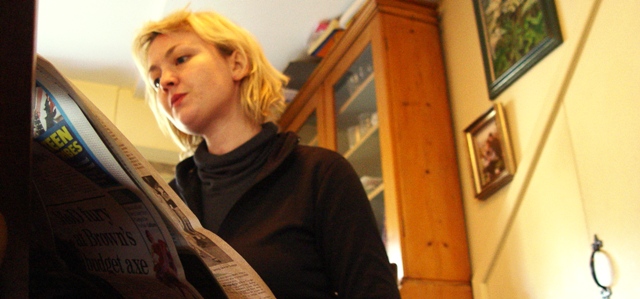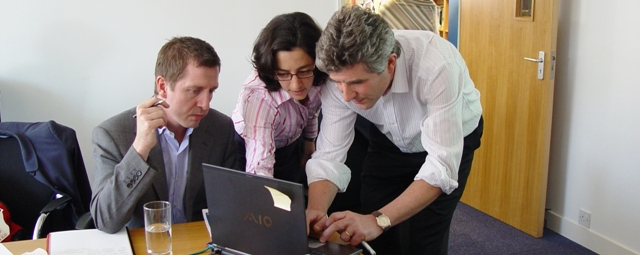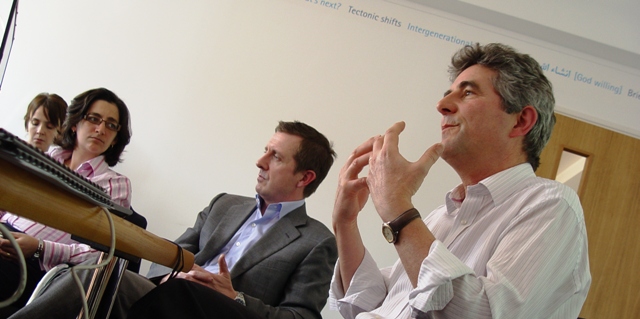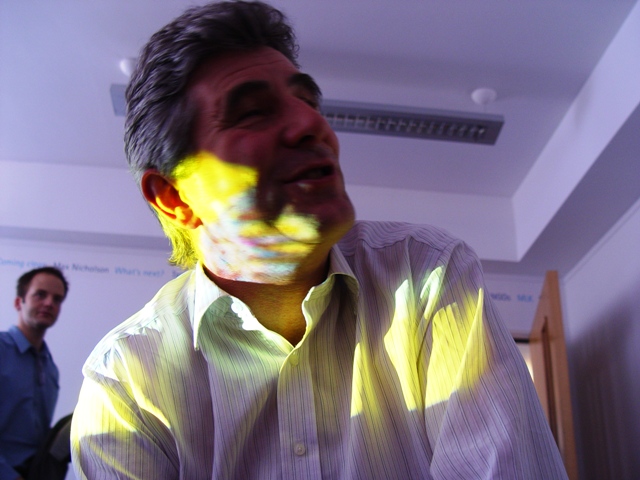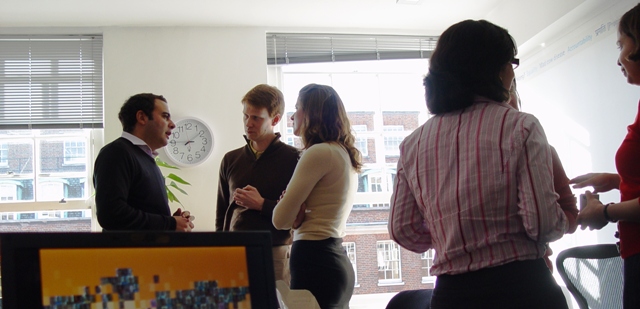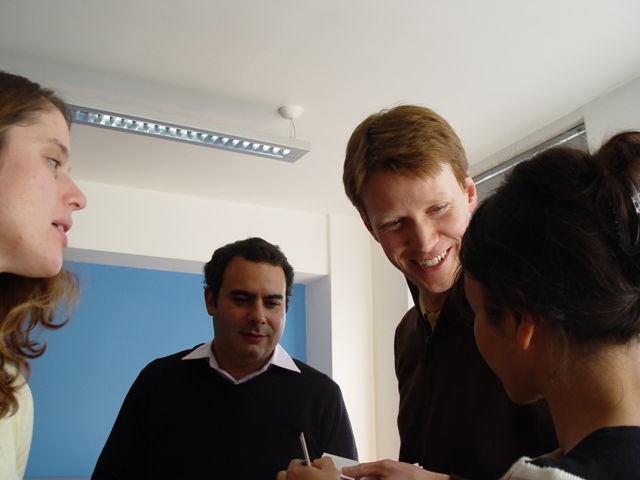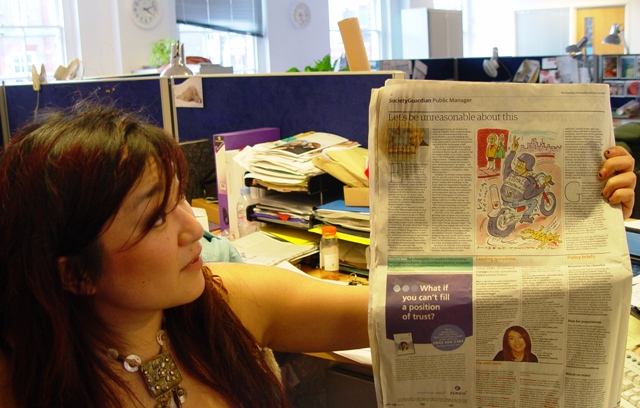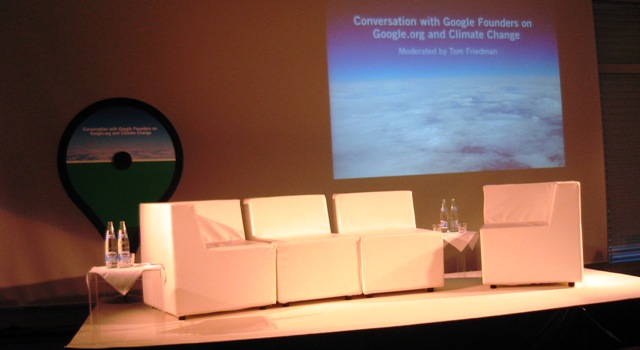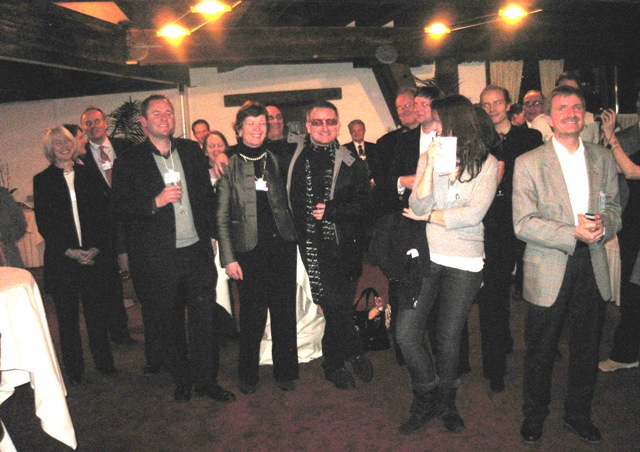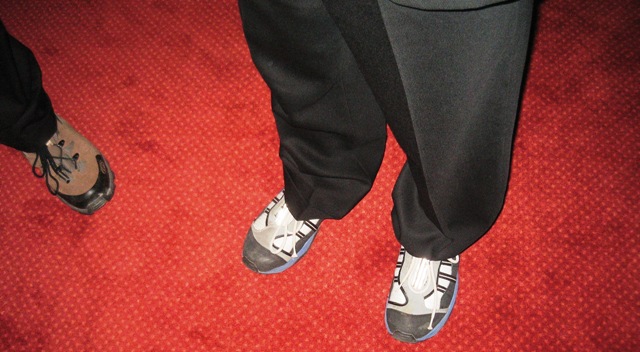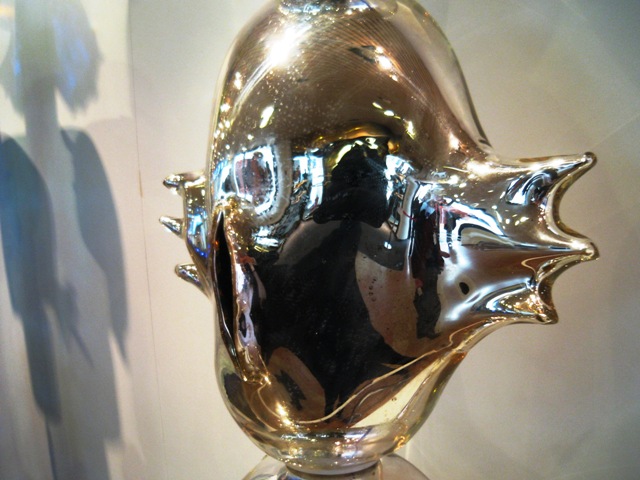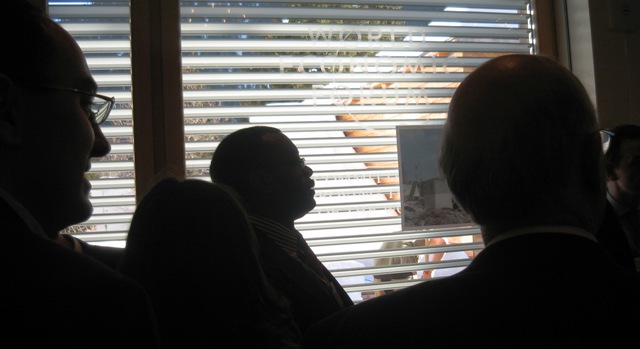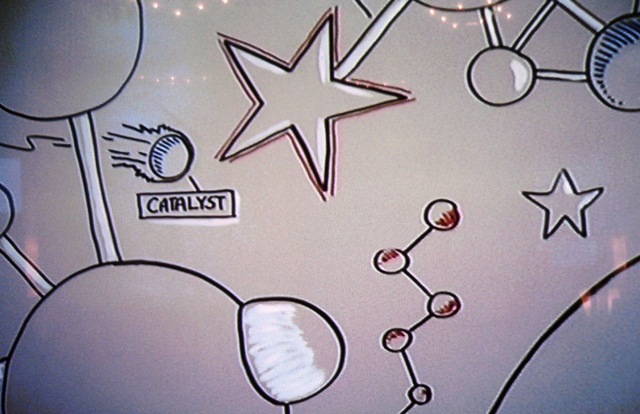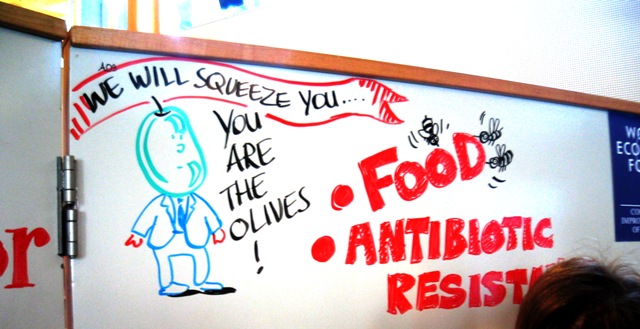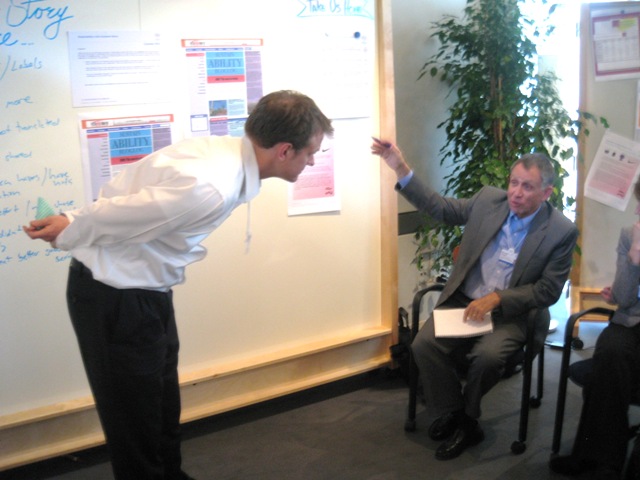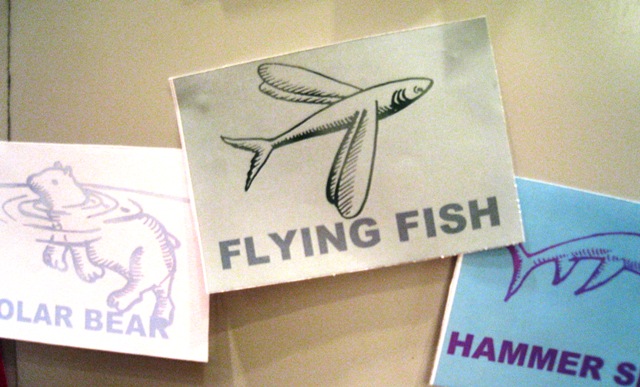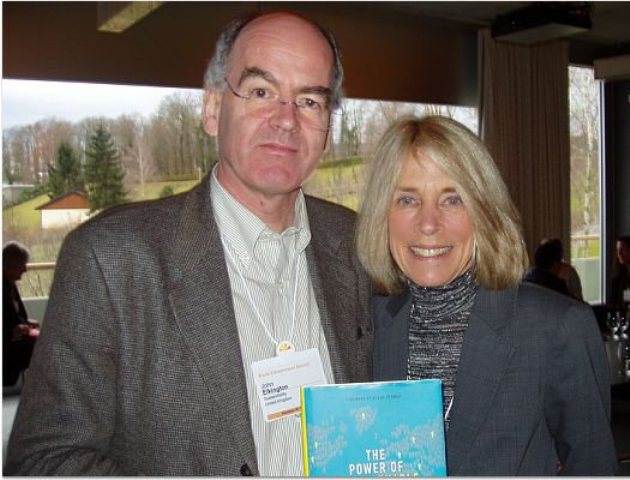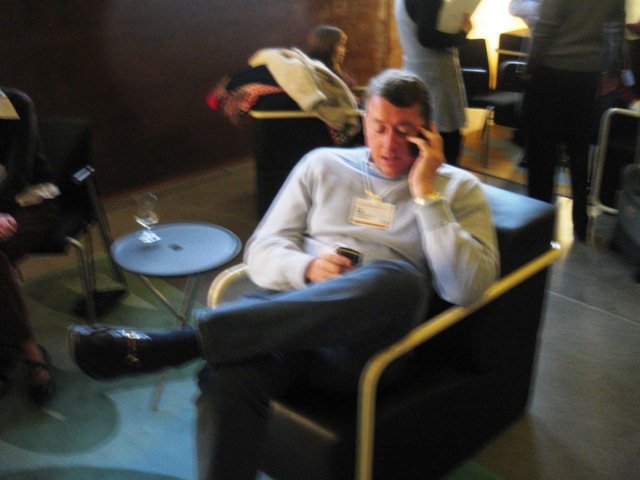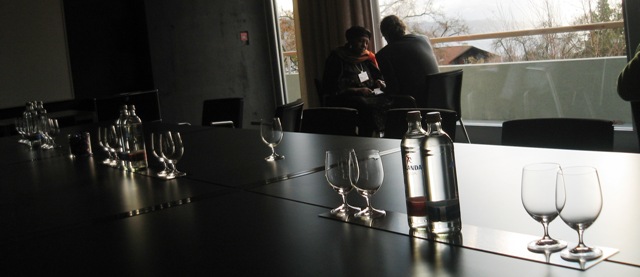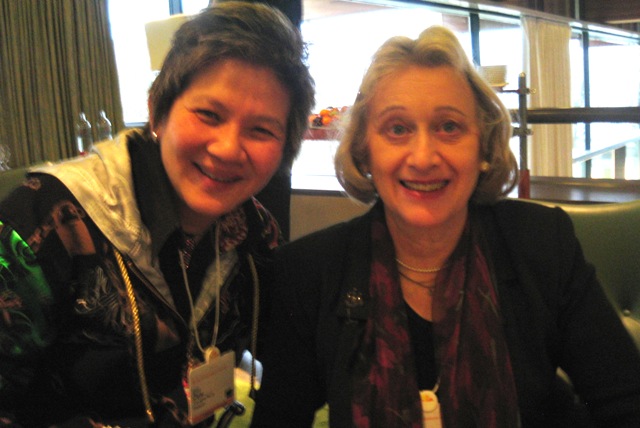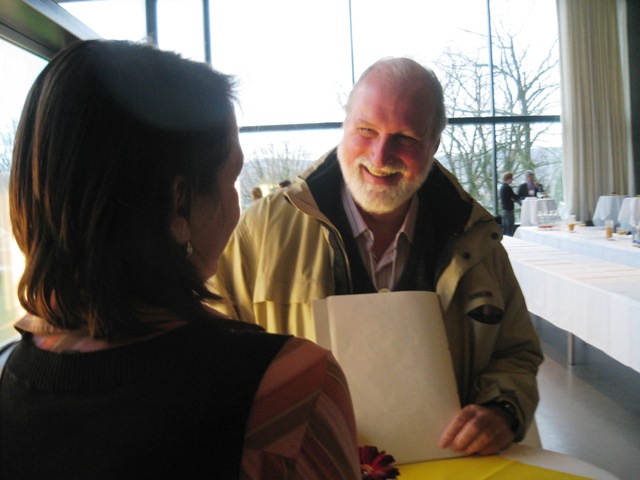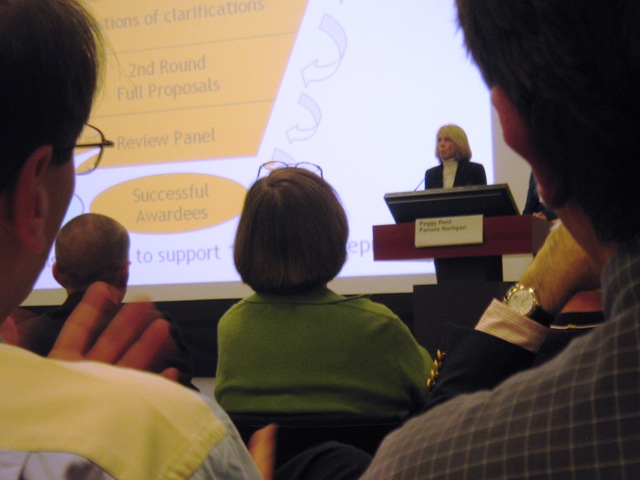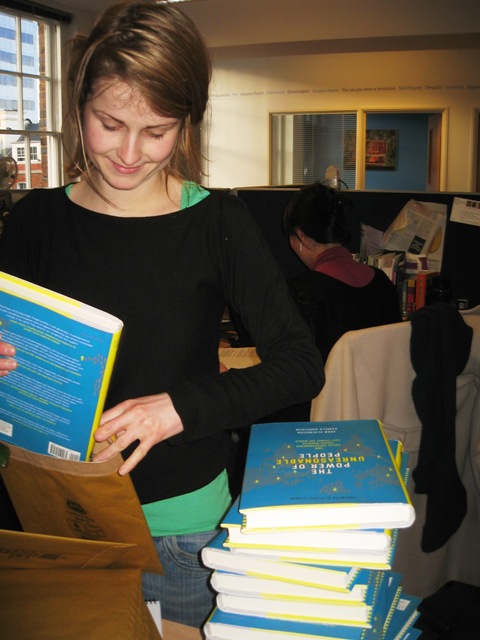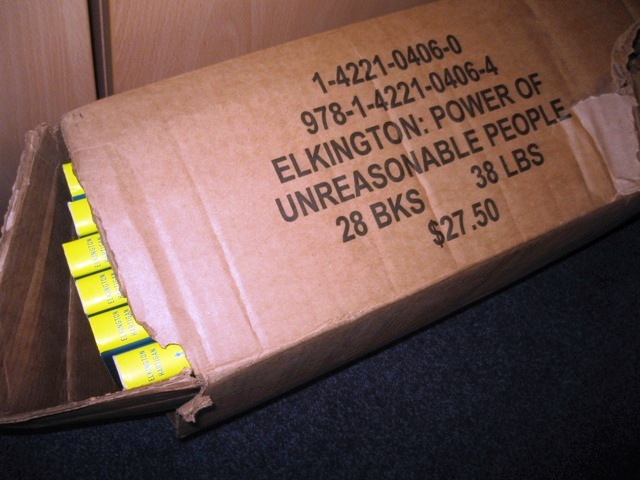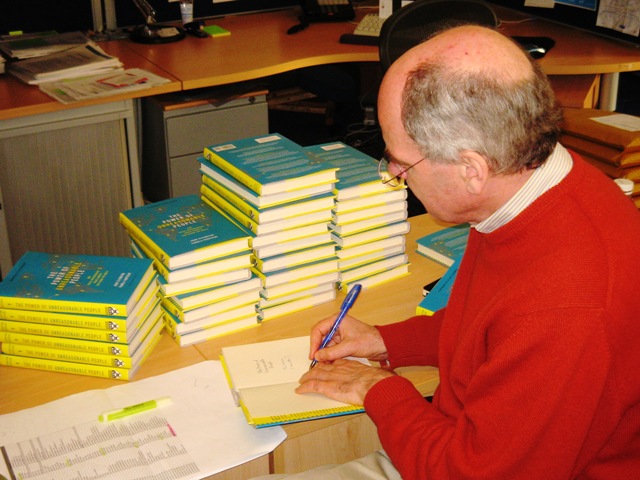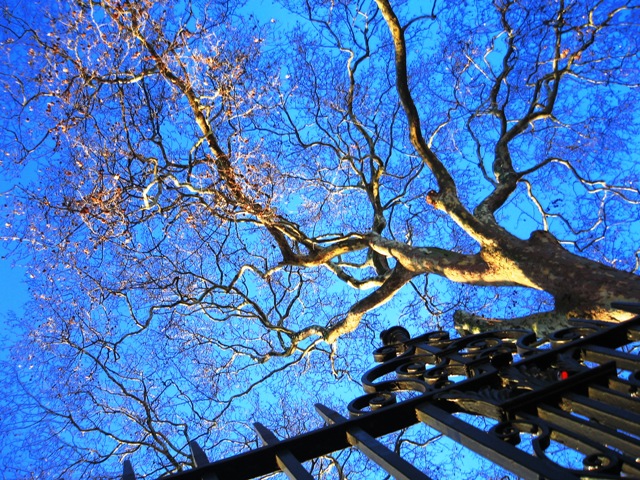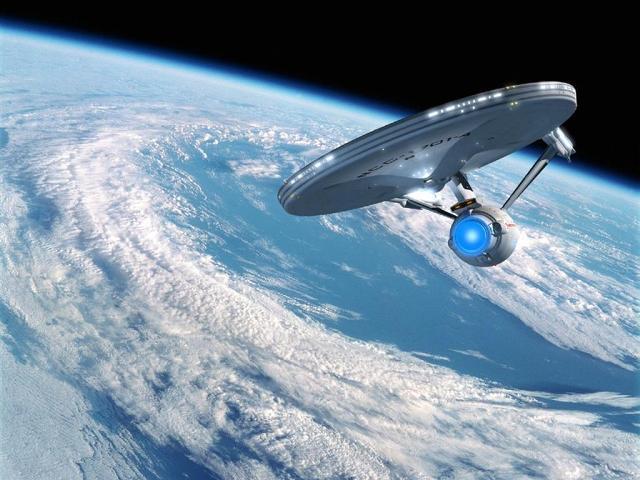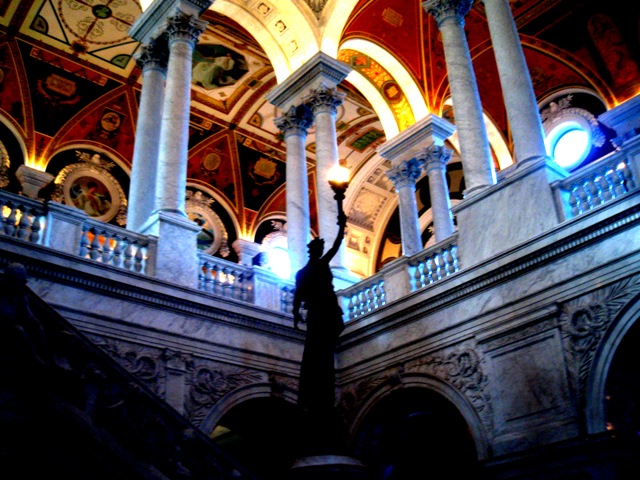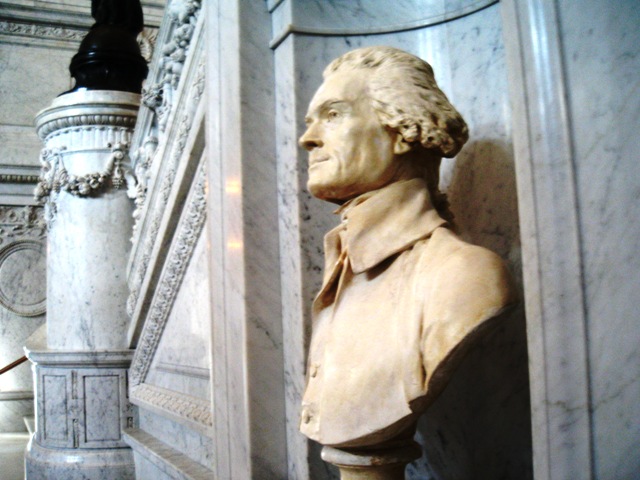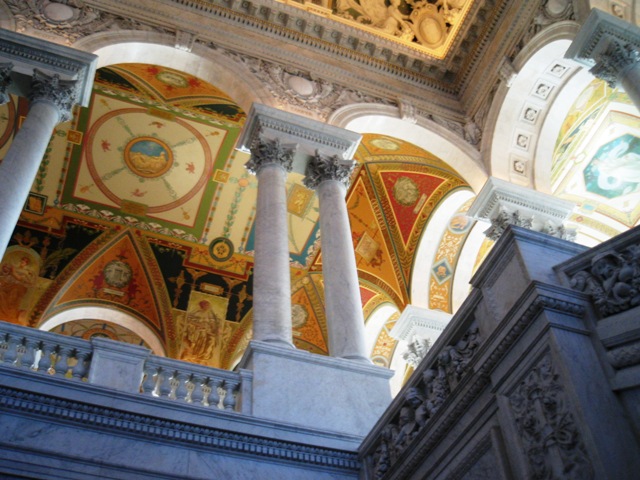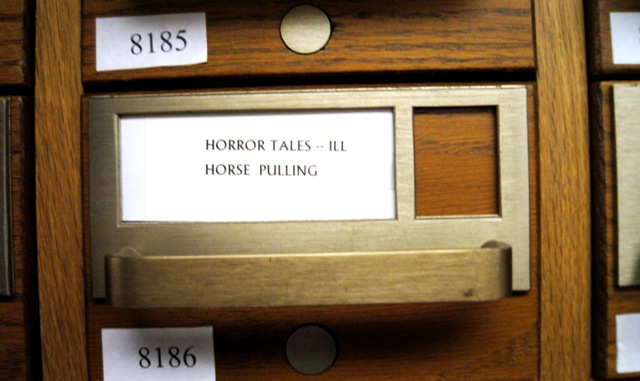Wednesday, May 14, 2008
Aegis Media accelerates

Arrived in fog- and smog-cloaked Beijing this morning, after easy fight from London. Blown away by the new Terminal 3 here, the biggest in the world, only open for around a month, and stunningly efficient as far as my experience went. Met off the plane by a charming VIP guide and steered through all the formalities, which helped immeasurably.
Then into the city by limo, alongside someone who does Formula 1 racing for a living. I mentioned my recent role with Honda, who raised something like $1 million with their Earth-painted racing car. Managed to steer some significant funding towards the Marine Stewardship Council and Wiser Earth. But am much more interested in how F1 racing can be used to force technology, as in recapturing energy lost in braking – something the industry is coming under intense pressure to crack. Talking with Scott Garrett, head of marketing at Williams, I noted that I like competition, as in The X-Prize Foundation’s work on sustainable mobility, because it taps into fundamental elements of the human psyche which the missionary approach to sustainability rarely – if ever – does.
Here for an event organised by Aegis Media on the theme of acceleration. Interesting to hear Nigel Morris, CEO of Isobar, encouraging the conference to engage with the sustainability agenda. As the man who identified the digital media challenge and opportunity space ahead of many in the industry, his views carry real weight. But when I saw the clothes he was wearing, and knowing he was chairing the introductory session I was about to do, I streaked upstairs, stripped off my tie and changed shirts. Adaptable, me.
As I write this, while waiting to go out to dinner, the sky over Beijing is pulsing with lightning, rolling with thunder. A reminder of the difficult weather in which the rescue operations are proceeding here after the recent earthquake. And now it’s pouring with rain, which hopefully will flush some of the gunk out of the city air. It’s stunning what China has achieved in short order, but looking out of the window I’m pretty sure I wouldn’t want to run a marathon here yet awhile.
SustainAbility.com reborn
Friday saw the launch of the first version of the revamped SustainAbility website.
Saturday, May 10, 2008
BA can be BAd

Front covers of the National Journal, where I was interviewed yesterday
Was hoping to fly back from Dulles at 23.00 last night, after doing my lunchtime session at the National Press Club for the World Environment Center. Unfortunately, however, something went wrong with one of the engines, so our take-off was aborted part-way through. We ended up spending a further 3-4 hours in the plane and airport before we were released to bed for the night. In the meantime, someone stole my suit jacket from the plane. Merry chase with an air steward trying to track down the culprit, him convinced we would find the jacket, me – having seen the jacket that had been left instead, pretty sure I would never see my jacket again. Because the loss means I can’t wear my only smart light-weight suit in Beijing next week, this means I have to buy another in short order. Flew back with United Airlines, which was rather less hectic.

Hurricane chases Spitfire around Dulles
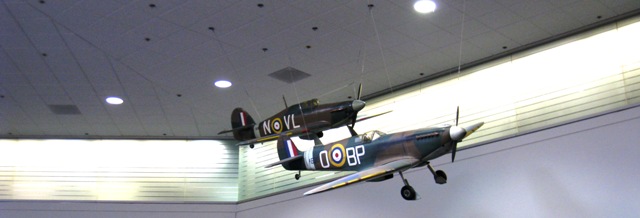
Ditto
Thursday, May 08, 2008
Sixtieth anniversaries
Israel celebrated it’s sixtieth anniversary today. I haven’t been there since I was a child, in 1959, when one of the high points – as I remember it – was sitting on the lap of a pilot of a DC3, or Dakota, as we flew across the Dead Sea, and being allowed to ‘steer.’ Now, with Beirut teetering on the edge again, it’s hard not to have mixed feelings about the Near and Middle East, Israel included. But there was another anniversary today that I feel much less conflicted about, my parents’ sixtieth wedding anniversary. Well, perhaps conflicted in another way. It’s painfully characteristic that I’m travelling – that I allow myself to be borne along on this travelator – rather than there, but we will be celebrating this extraordinary family event in just over a week, when (hopefully) we’re all back in the country.
Thunder in DC
Flashes of lightning and thunder claps as I wrestled once again with Microsoft Outlook over a glacial Internet connection in the JW Marriott Hotel, Pennsylvania Avenue. Cold rain slashing at the window. CNN covering, endlessly, tomorrow’s Time magazine cover declaring Barack Obama as the “winner” of the Democratic nomination. But with the process still under way, it’s hard not to recall the saying, “There’s many a slip ‘twixt cup and lip,” or words to that effect. Still, if I had a vote I would vote for him, not least because America, to my mind, needs to make a truly radical break with its recent past, and nothing would signal that more clearly, particularly in places like the Middle east, than an Obama win.
Arrived in from San Francisco late last night, then today had meetings with people from the World Resources Institute (WRI) and Environmental Defense (Fund: EDF). Shuttled across to the old Watergate complex for an interview with the National Journal early in the afternoon, then back to SustainAbility’s offices in R Street, NW. Thrilled I brought an umbrella. Then back to the hotel to work on things for WEC, China Dialogue and innovations. Will catch up on blog entries when I get back to London, hopefully on Saturday.
Monday, May 05, 2008
KQED and IDEO
Started the day with an hour-long interview on the Forum program on KQD, alongside three social entrepreneurs: Stephanie Bernstein (CEO & Founder, To-Go Ware), Matt Flannery (Co-Founder & CEO, Kiva) and Eric Grossberg (CoFounder, Brilliant Earth). Then Matt kindly drove me across to Pier 28 and IDEO, where I met up with Matt (Lee) and we dived into the rest of the day c/o IDEO, where we were launching our latest report, The Social Entrepreneur: A Fieldbook for Corporate Changemakers.
In the afternoon, overlooking the Bay, we did an IDEO-style session with 40-some folk. In the evening – introduced by IDEO CEO Tim Brown – we opened it out to some 60 people. Then, after dinner, I chaired a panel session with Sam McCracken of Nike, Cristin Lindsay who heads the Progressive Automotive X-Prize operated by The X-Prize Foundation and John Wood of Room-to-Read.
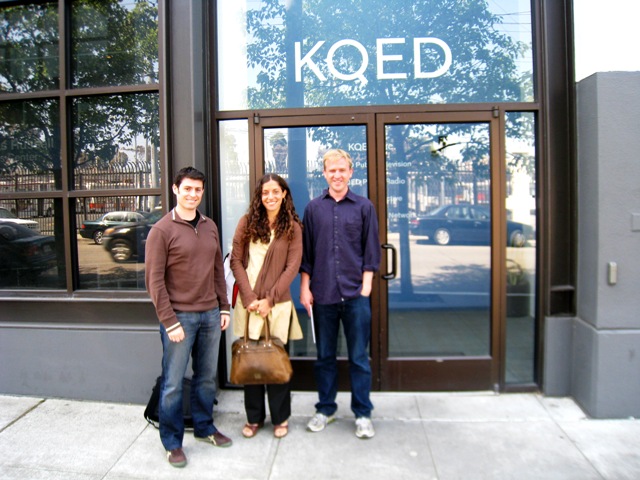
Eric, Stephanie, Matt
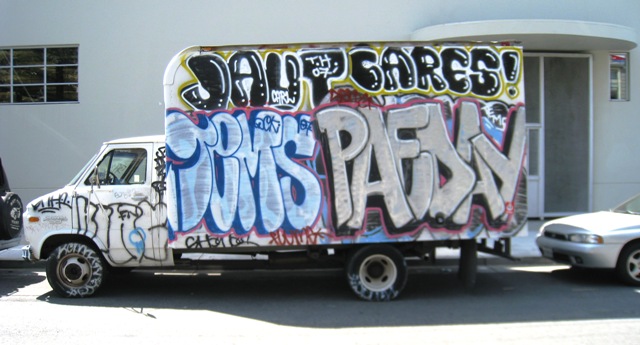
In front of Kiva.org

Inside Kiva.org

Behind Kiva.org
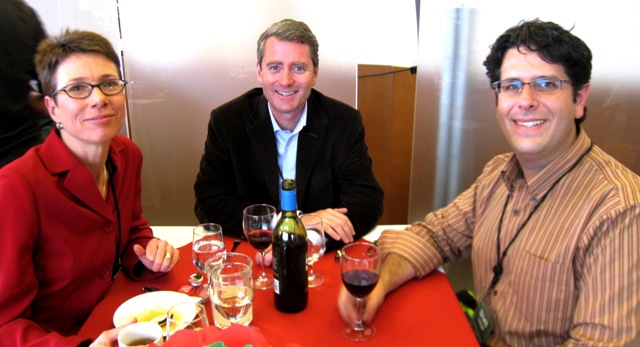
Debra Dunn, John Wood, Brett Galimidi
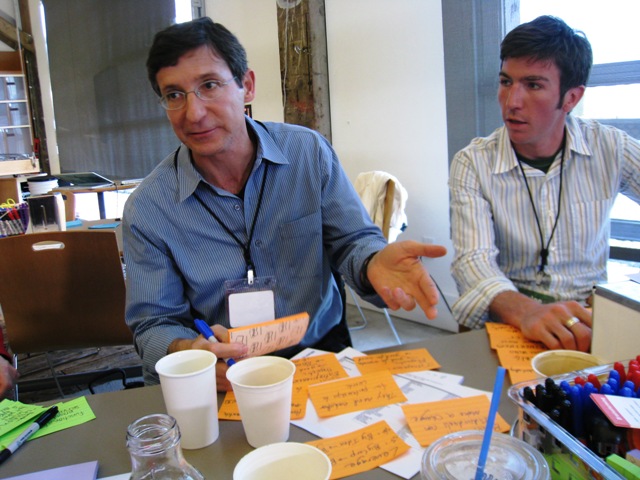
Martin Fisher of KickStart holds forth
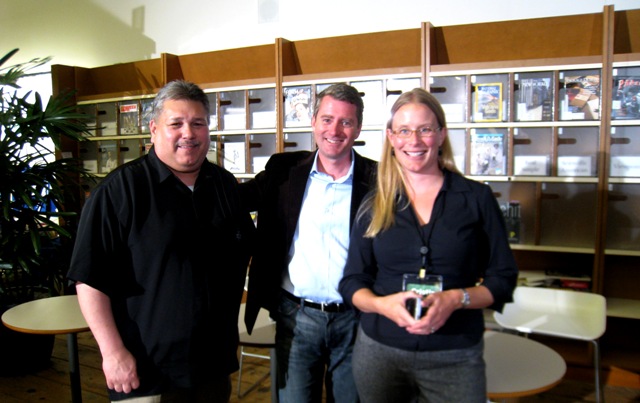
Sam McCracken, John Wood, Cristin Lindsay
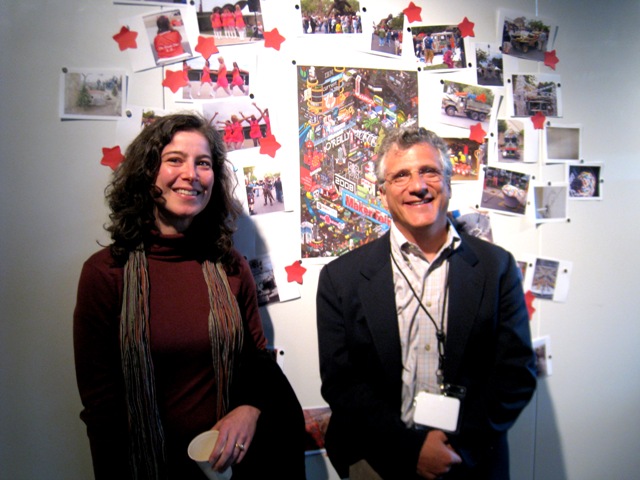
Susannah Kirsch and Will Rosenzweig of Physic Ventures
San Francisco slipstreams

Flew to San Francisco on Thursday, with a mad dash to get to T5 because of a taxi that didn’t arrive. Then the BA check-in was primeval, following which – with my adrenaline cranked up to unusally high levels – I left my credit card in a machine and didn’t wake up to the fact until I was half a T5 away, which was an unbridgeable distance. Plane was late to take off and therefore late into San Francisco, which then meant I was racing to get to a dinner hosted by Physic Ventures at Kokkari. But great when I eventually managed to get there.
Friday was pretty much all Physic, where I am a member of the Strategic Advisory Board, on the twentieth floor of One Embarcadero center, with a spectacular view of the harbour. As I was photographed by a floor-to-ceiling window, I kept getting flashes of intense vertigo. Then in the afternoon Will (Rosenzweig) drove me in his Prius, across the Golden Gate Bridge to his Marin County home, from where I looked down on circling turkey vultures – and, among other things, did a long telecon in relation to a stuttering energy-related project that Volans may or may not do this year.
Yesterday, I did a fair amount of work on the laptop in the hotel, before first meeting up with Paul Hawken for a semi-magical chat, and then heading across to see old friends, Ian Keay and Alda Angst. Wonderful Indian meal, after which they drove me back into town. Today, I have been working pretty solidly, until around 18.45, when I walked across to 570 Fourth Street for dinner with Mark (Lee). Keep walking through slipstreams of hashish or marijuana here in San Francisco, which is oddly comforting. Flashes of the old San Francisco.
Thursday, May 01, 2008
LSD and Corporate Governance
As I packed this morning for T5 (God help me) and the US, I tidied up a set of cuttings from recent newspapers, including two obituaries, one from today’s Times and the other from yesterday’s paper. Today’s was for Albert Hofmann, the Swiss chemist who worked with Sandoz and discovered LSD. When we met Shawn Phillips in Positano in 1970 (see under Influences, Music), Hofmann was a key topic of conversation. Some sort of psychedelic saint. My own LSD experience had been either in 1968 or 1969, I can’t now remember. But, though I wildly regret what has happened to the illegal drugs industry since, that experience truly opened doors of perception I am glad didn’t stay closed to me.
And the link to the second obituary? This was for Sir Derek Higgs, who was Chairman of Alliance & Leicester, and who I mainly knew through the time when we worked together at Business in the Environment, part of Business in the Community. In any event, his key 2003 report on corporate governance was a brave attempt to help business leaders cope with the blizzard of signals that come in from every part of the business environment today.
In a way, it is almost as if companies are potentially on the corporate form of LSD, open – through their employees and other stakeholders – to endless stimuli. And we have certainly added to the challenge with all our efforts to promote wider forms of stakeholder engagement. The key task of boards and other organs of corporate governance is to ensure that the doors of corporate erception are sufficiently open, but that in the midst of all of this the key strategic priorities are identified and addressed.
More anon.

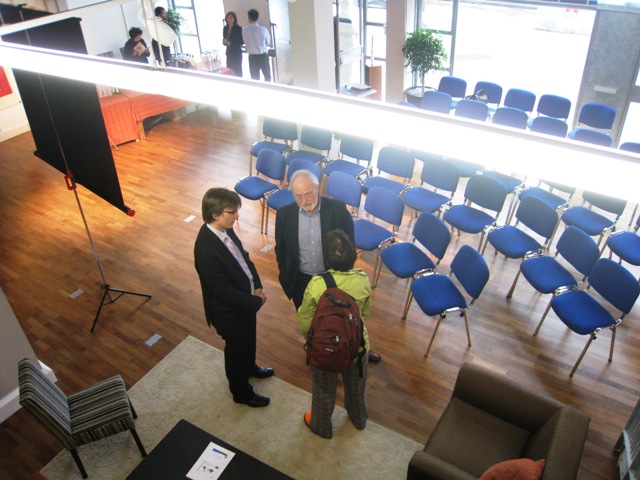
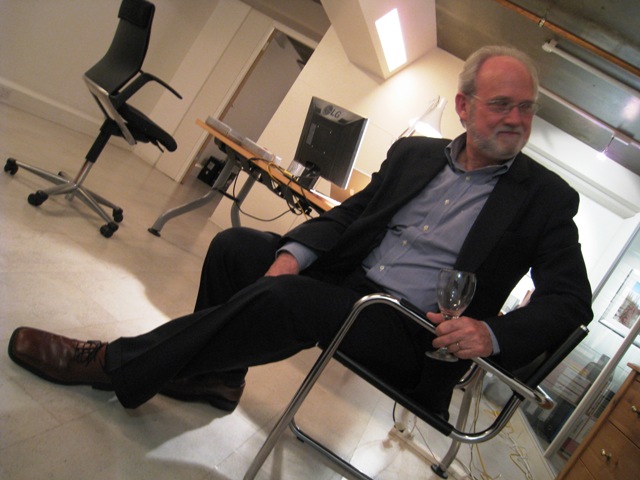
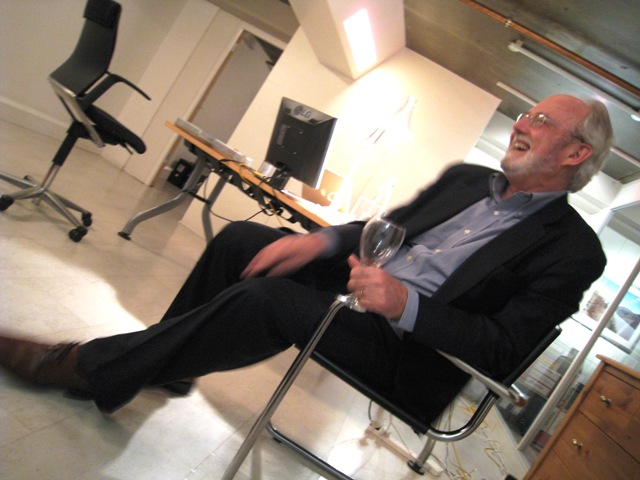
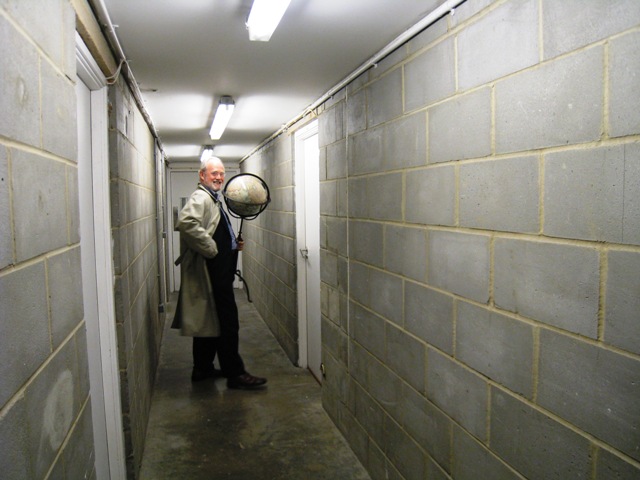
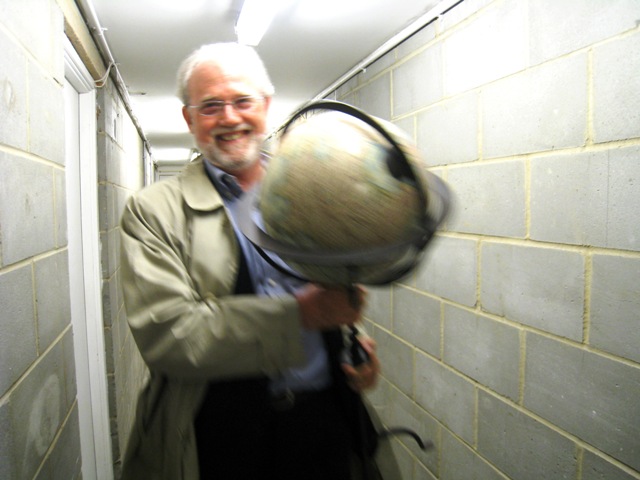
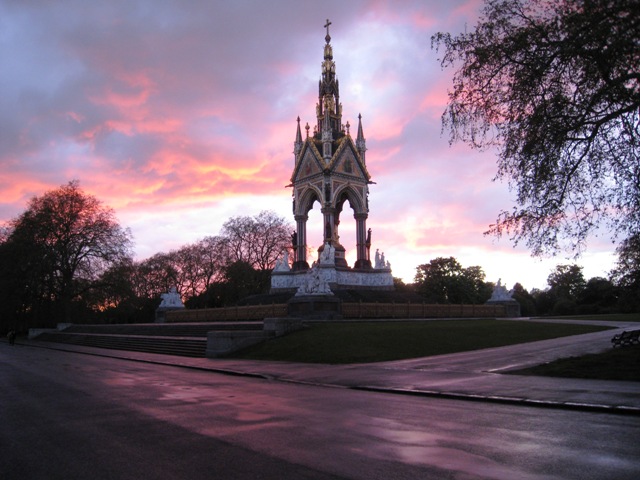
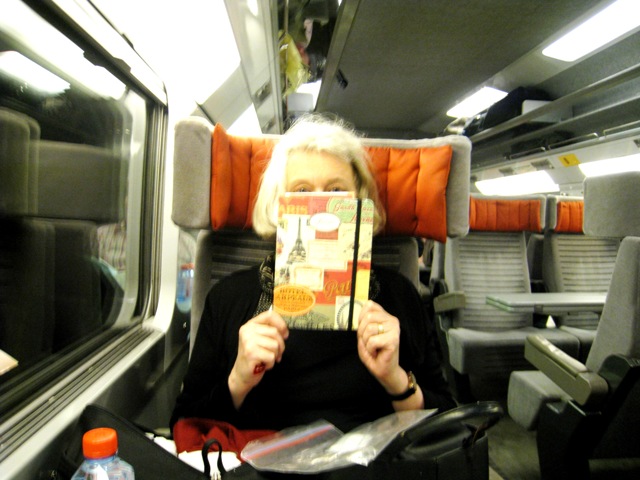
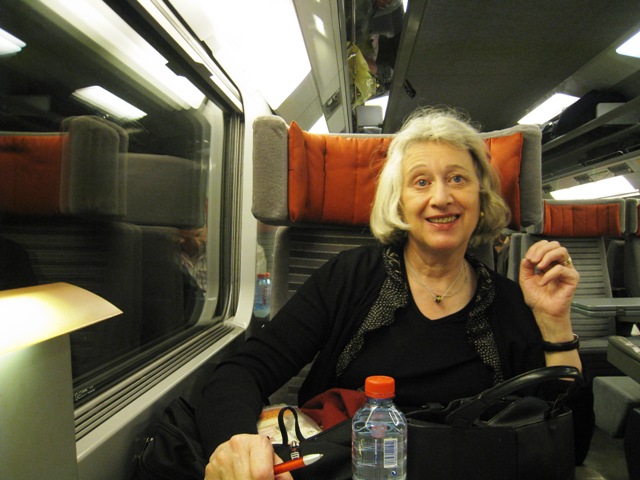

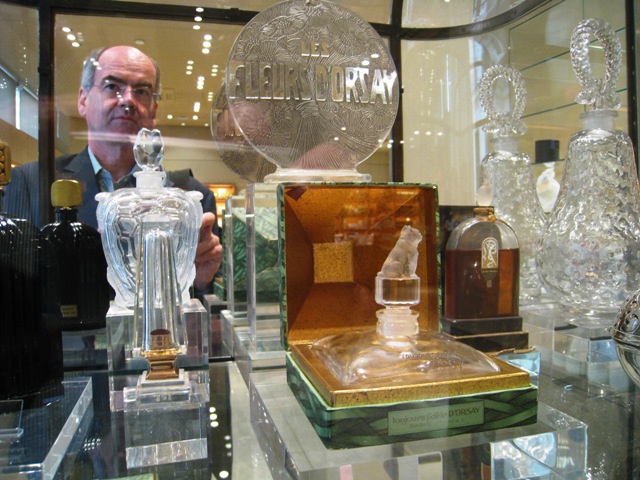
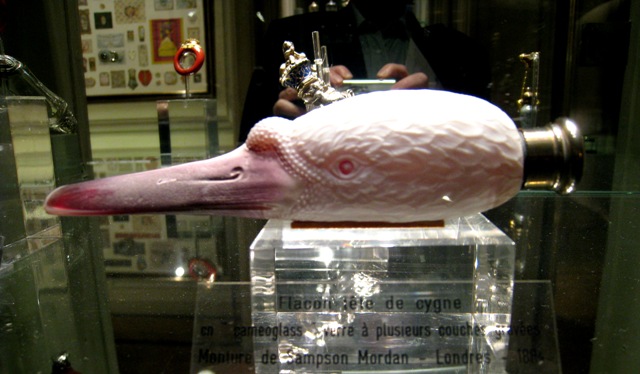


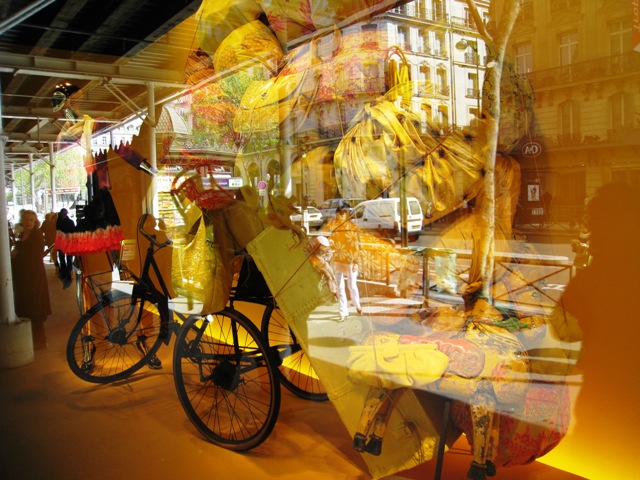
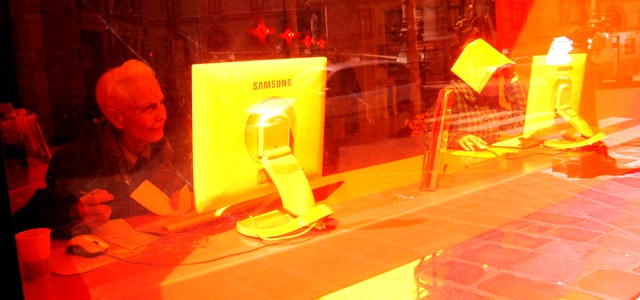
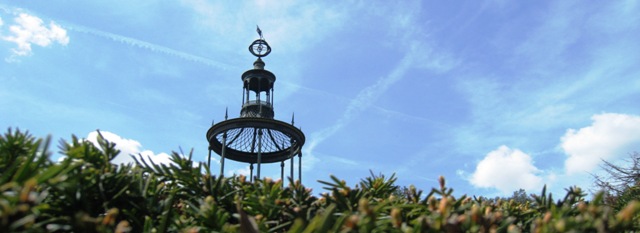
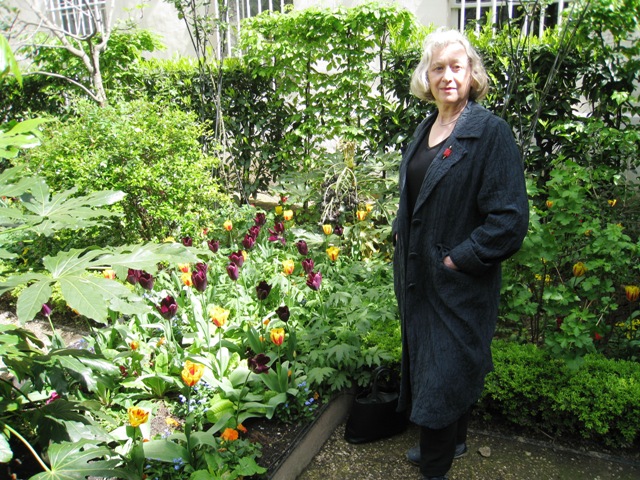


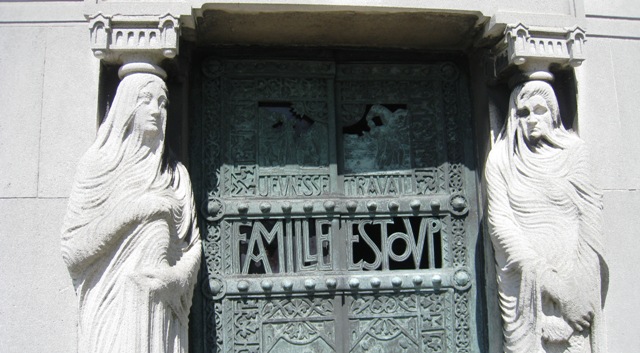




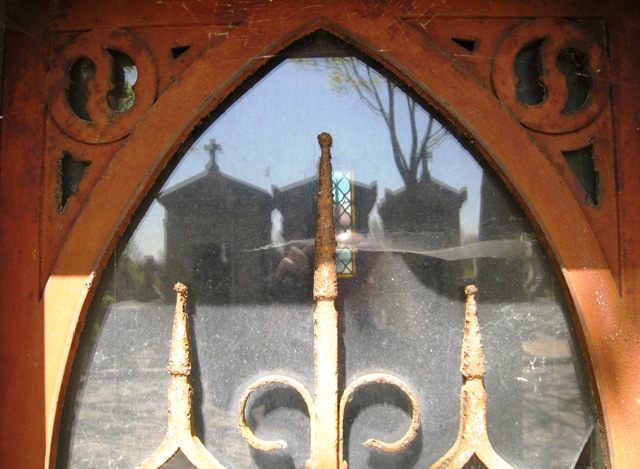
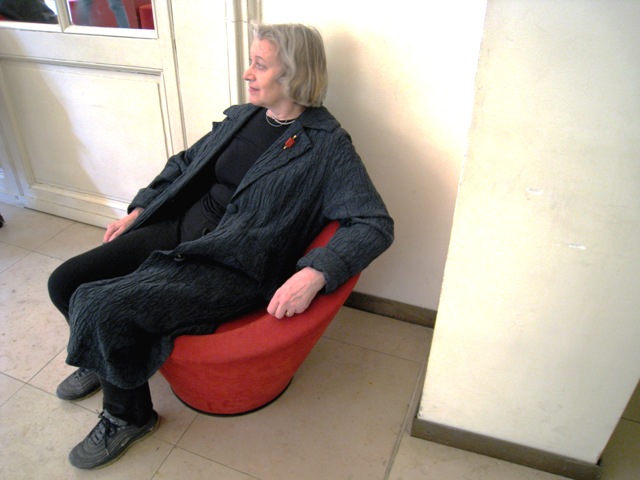
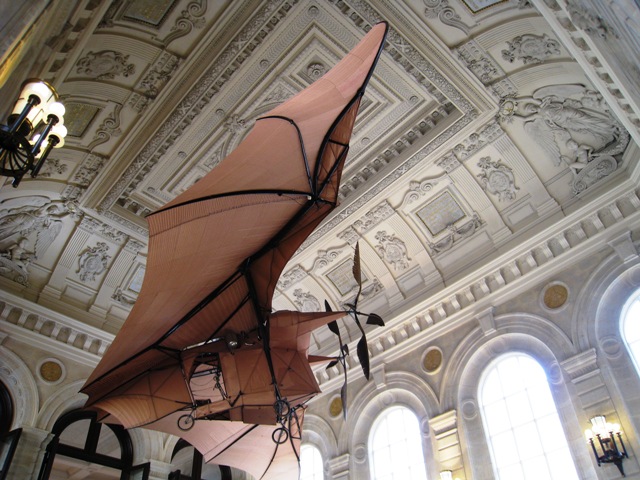
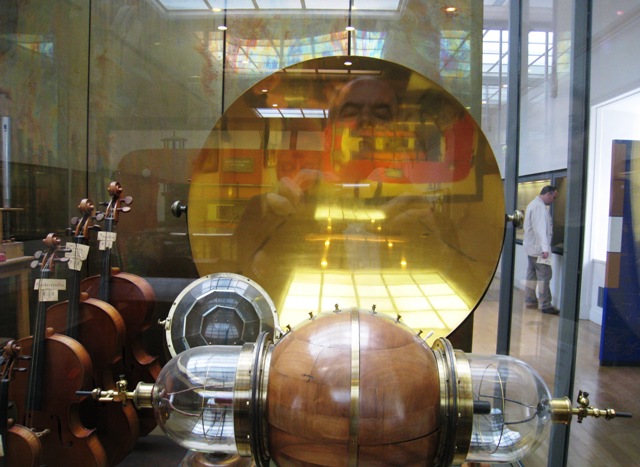
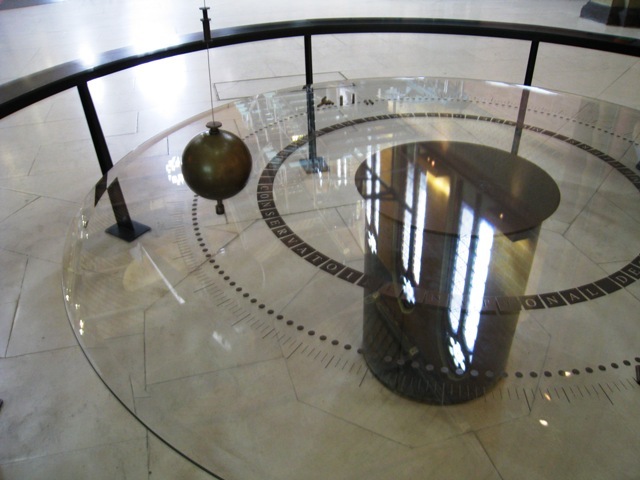

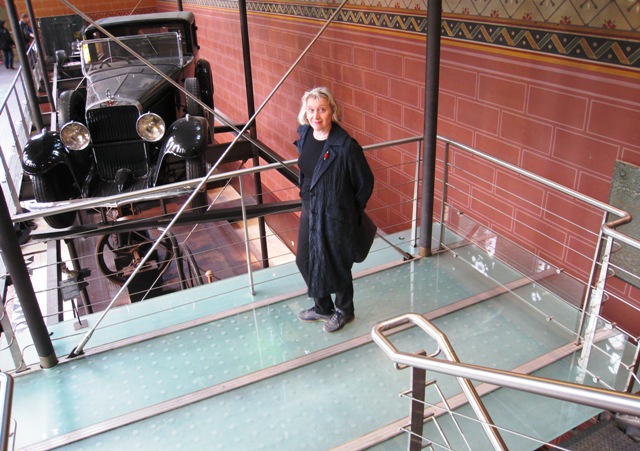
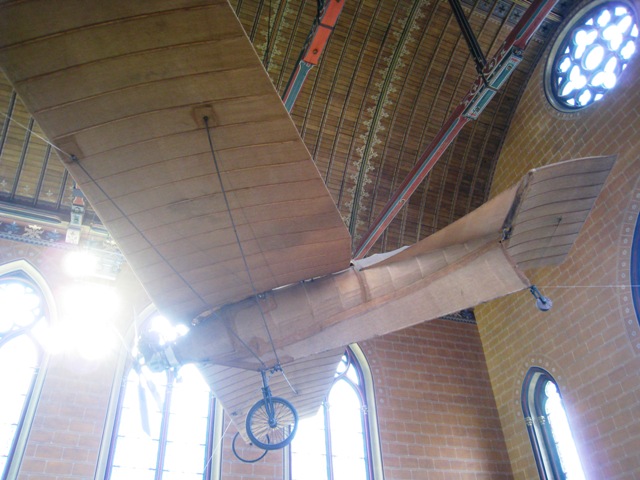
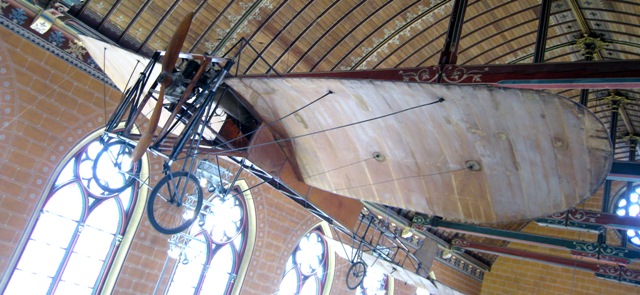


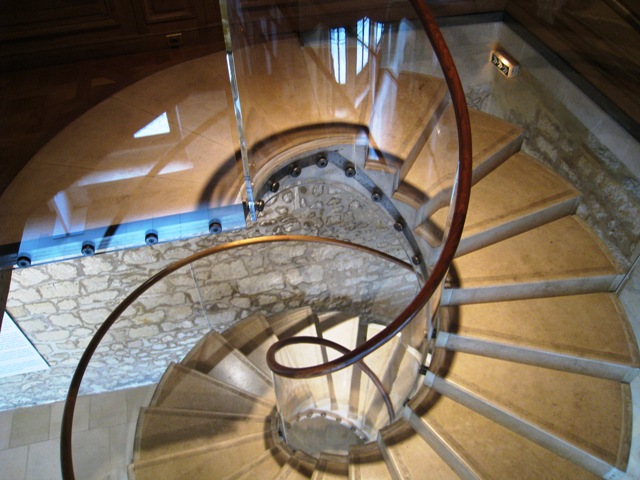
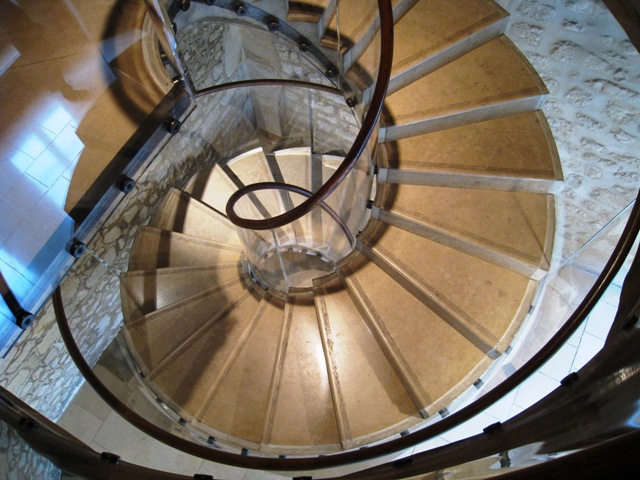
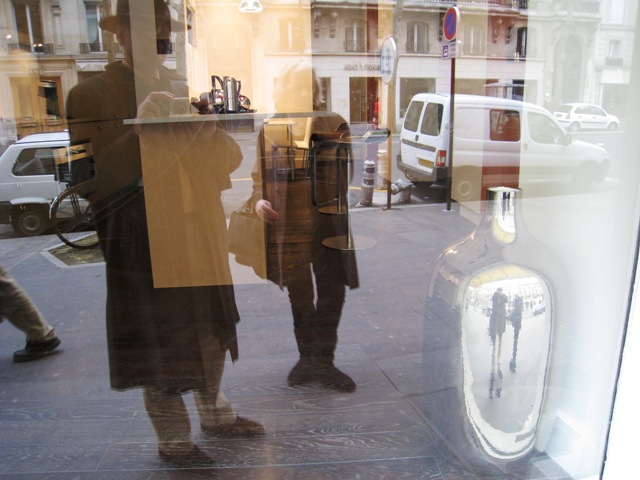
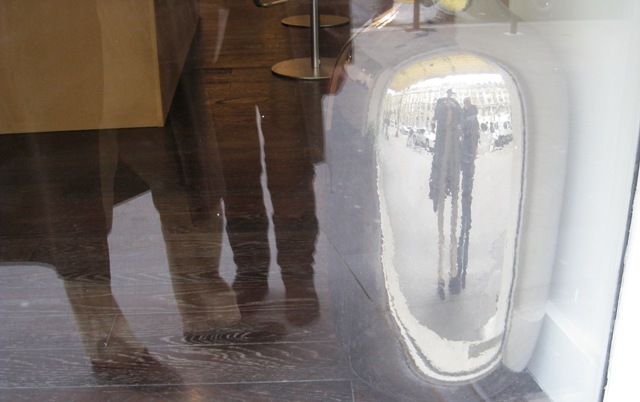
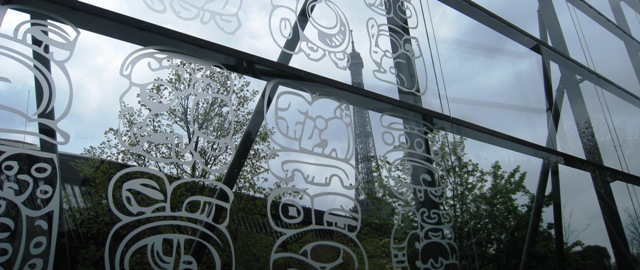

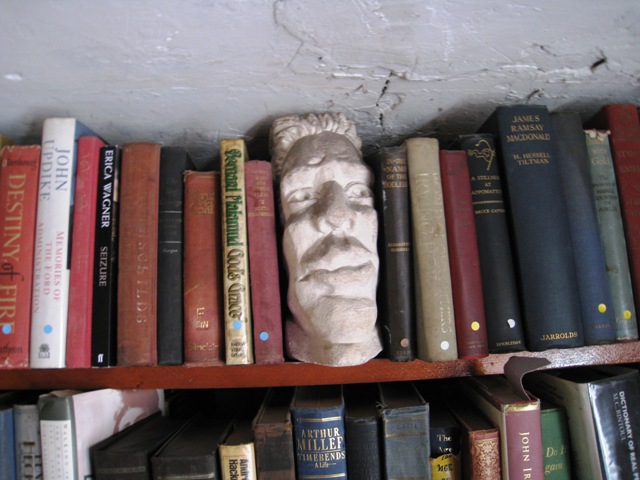





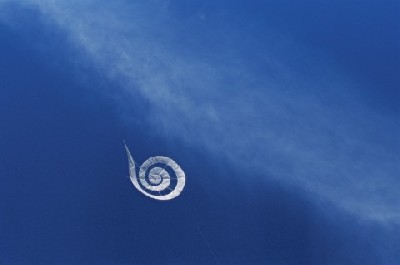




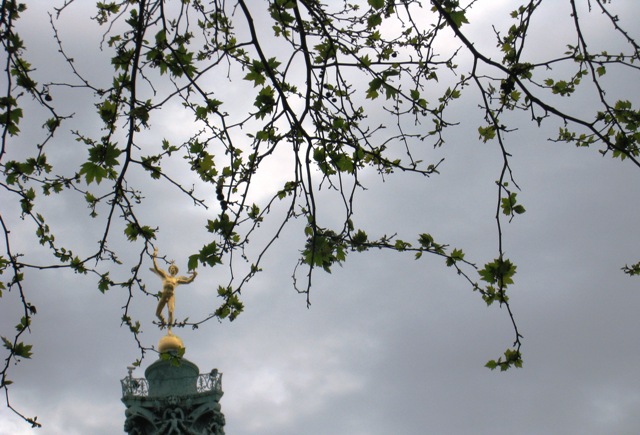
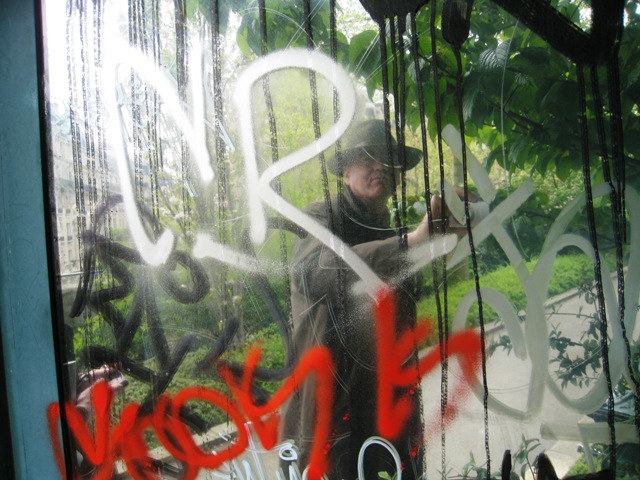


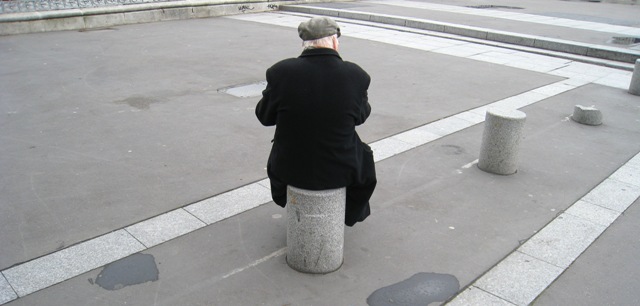
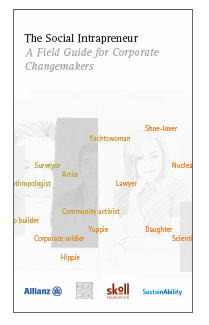
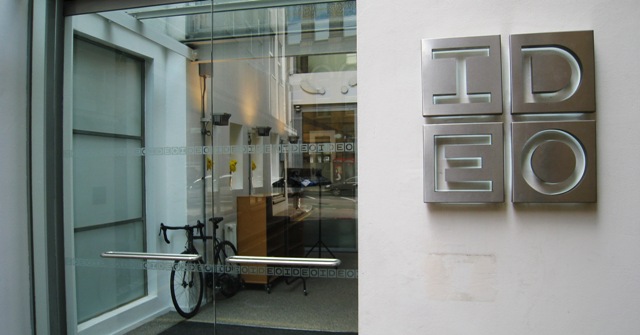

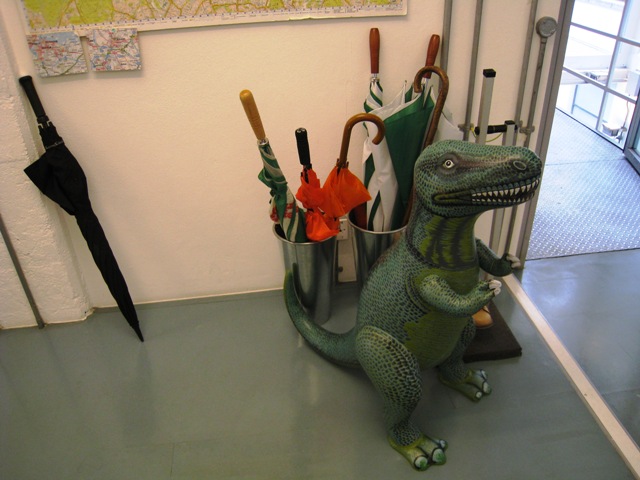



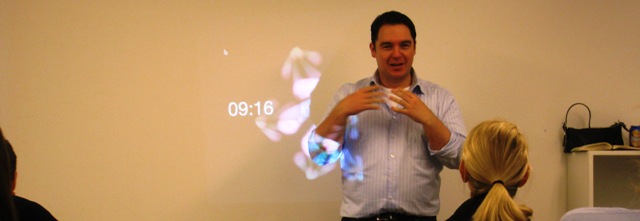
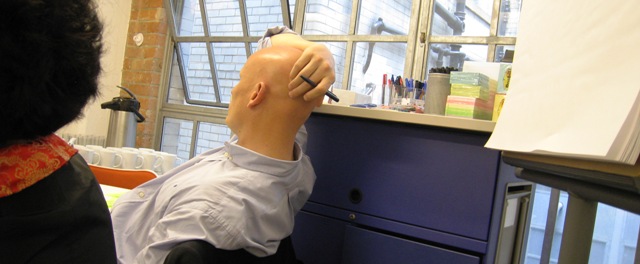
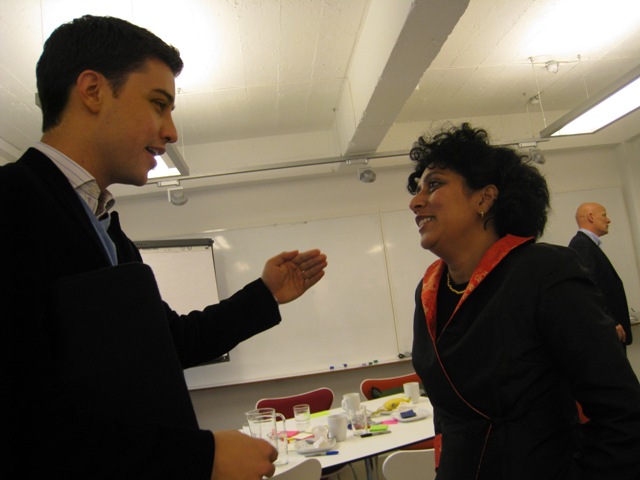
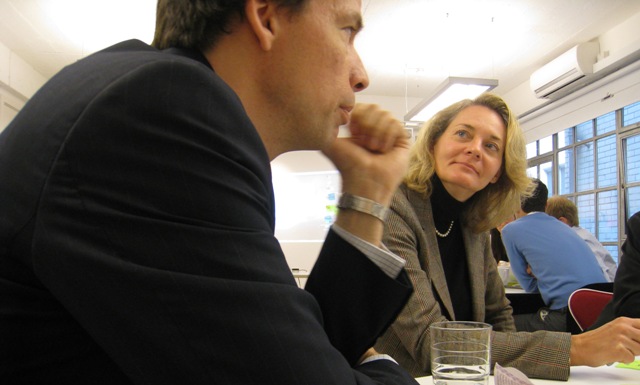
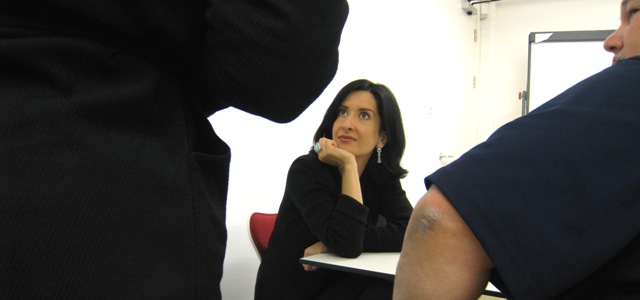
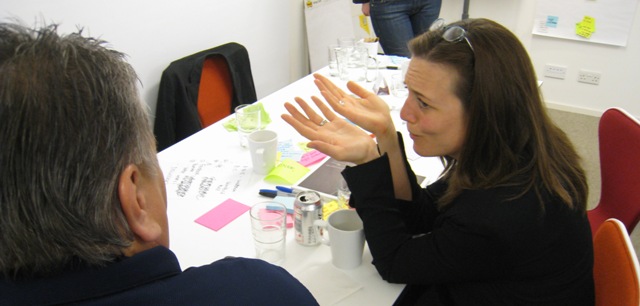
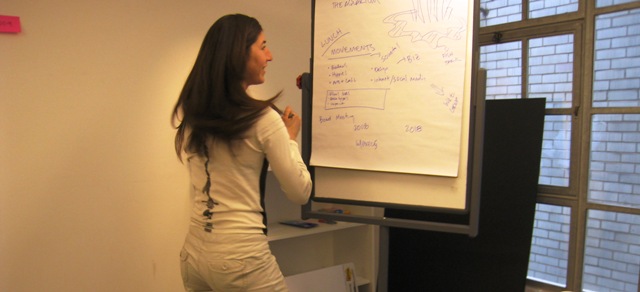
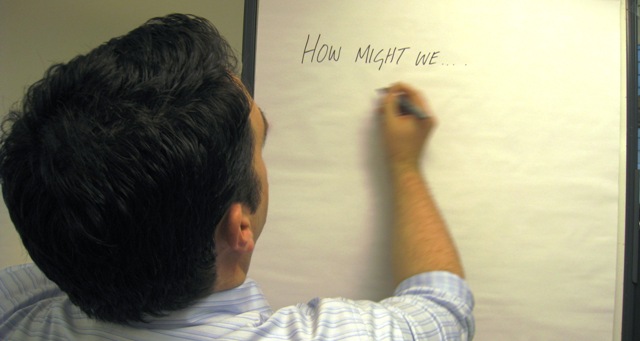
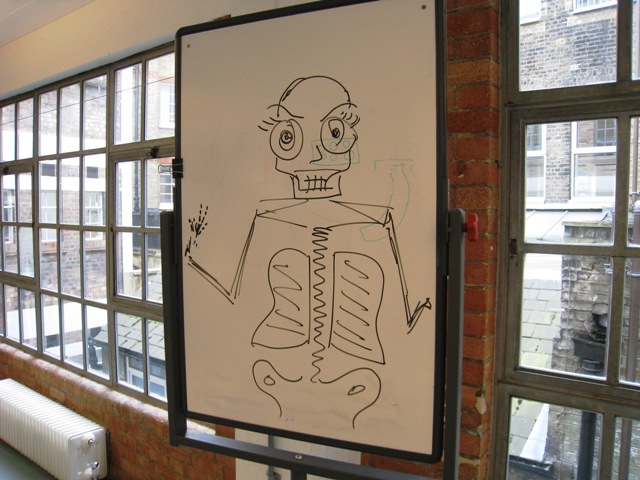
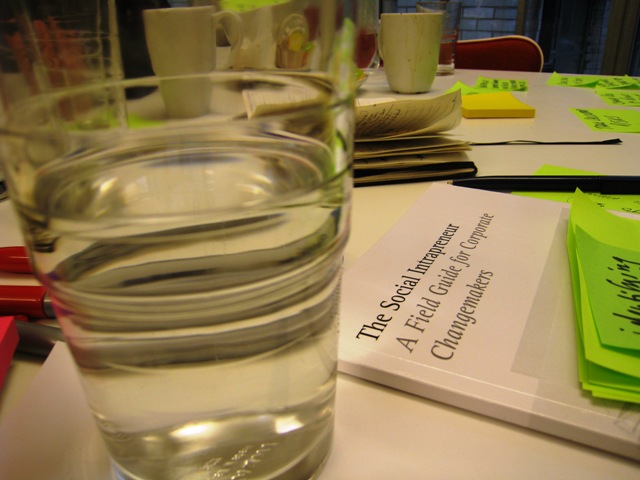
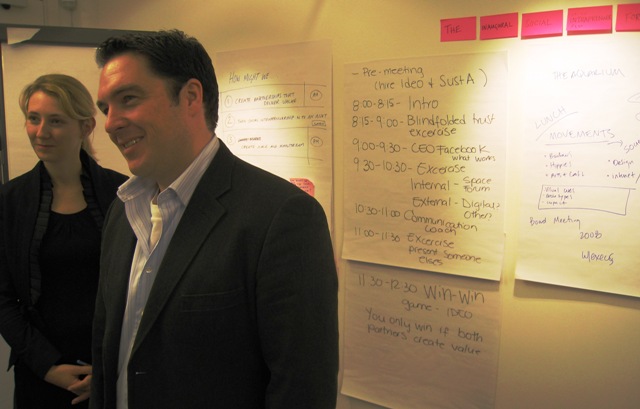
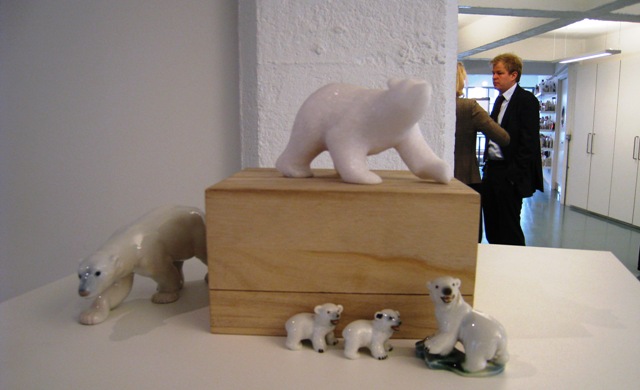
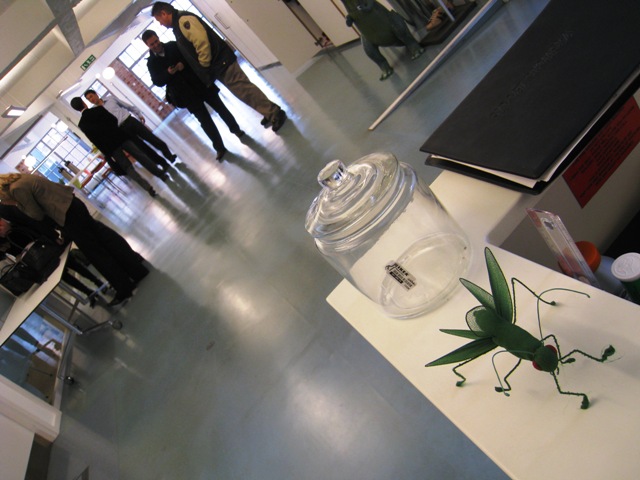
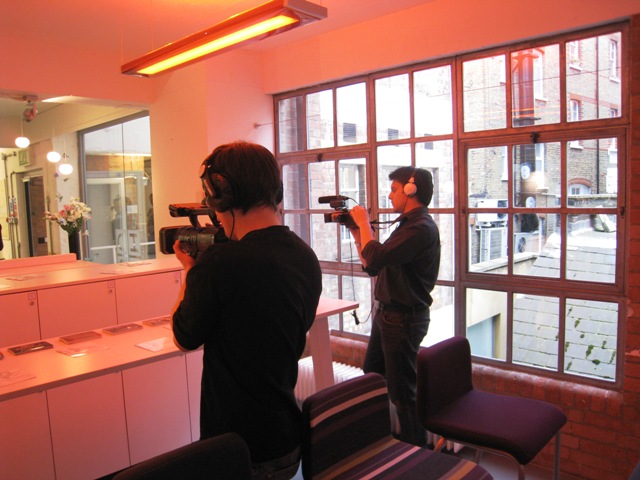

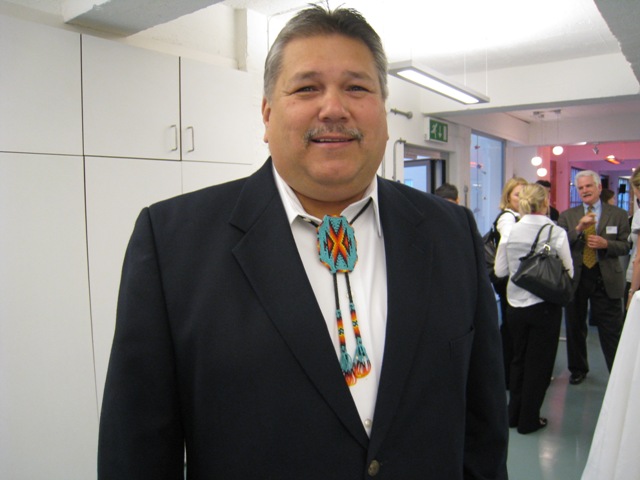
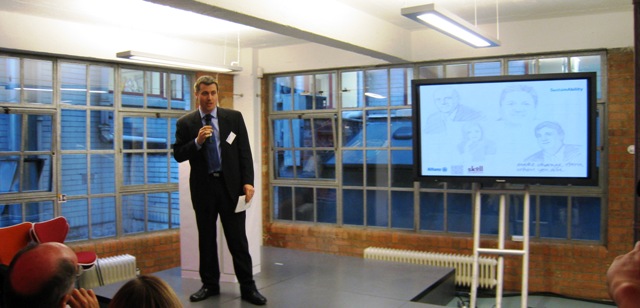
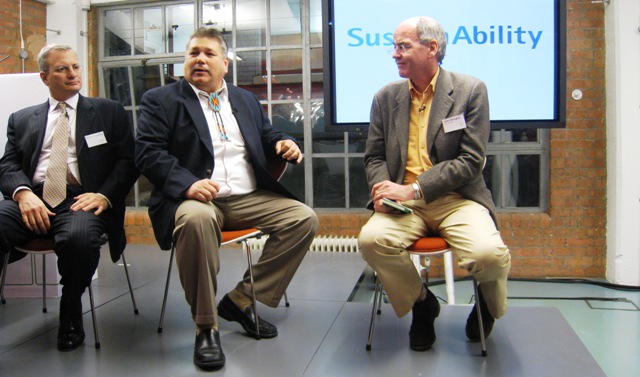
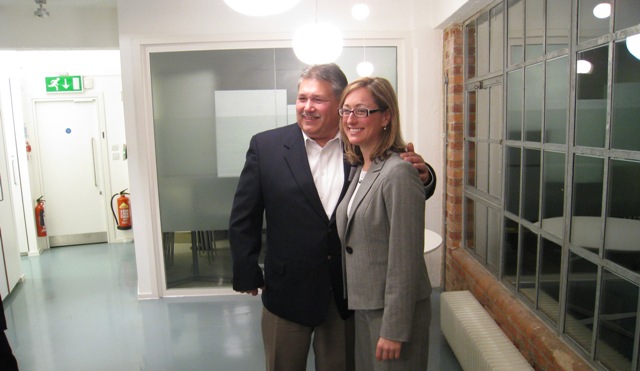
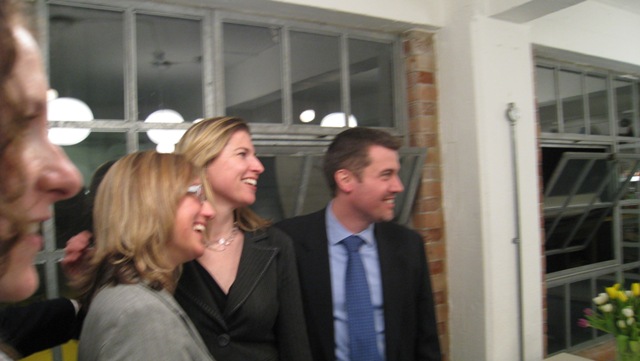
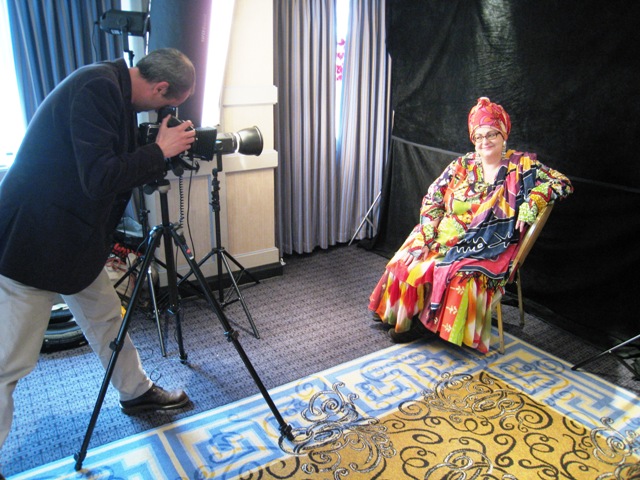



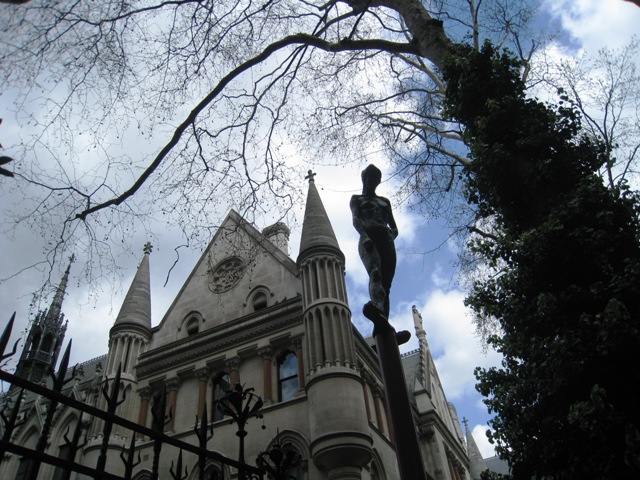
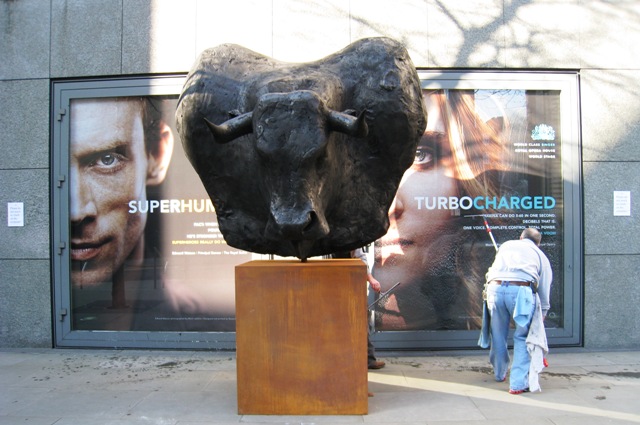
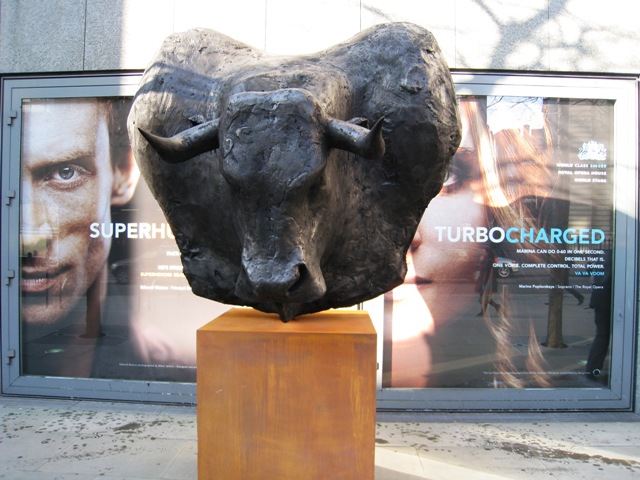




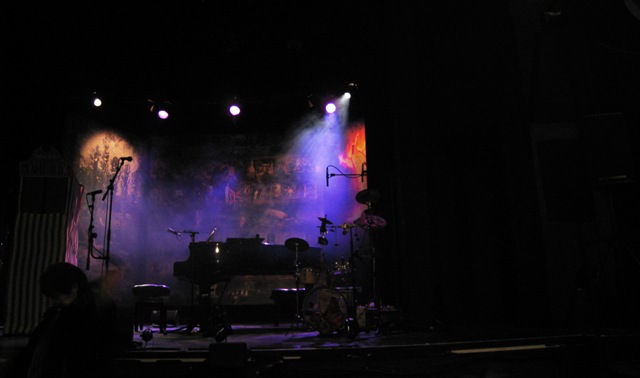


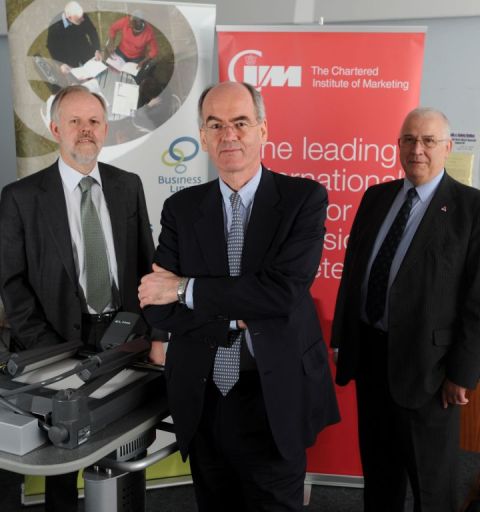
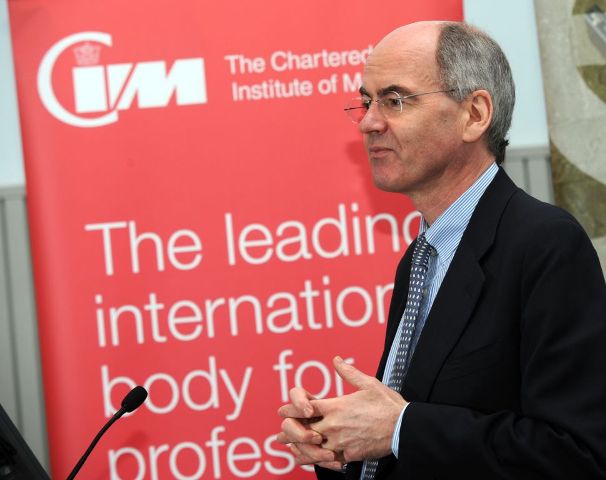
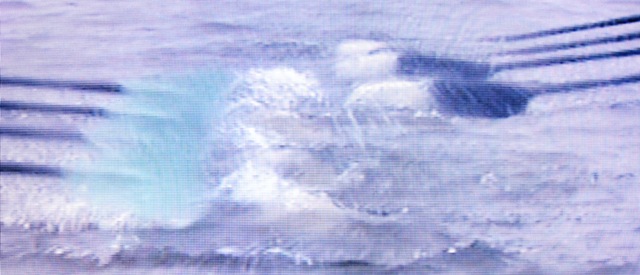
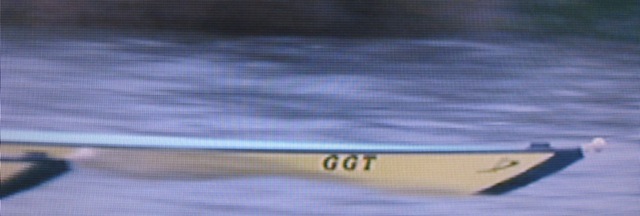

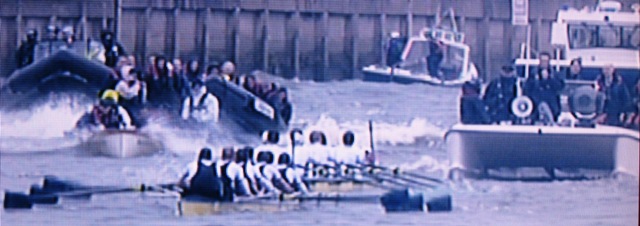
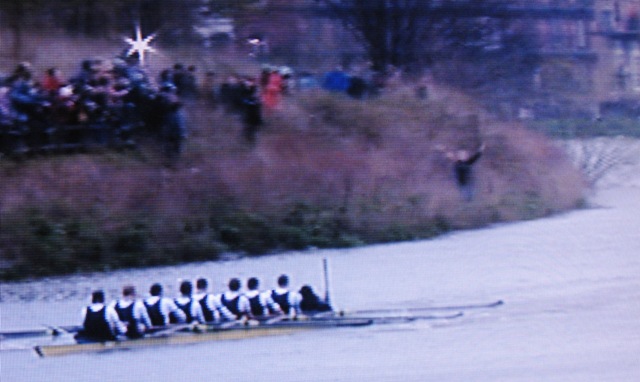

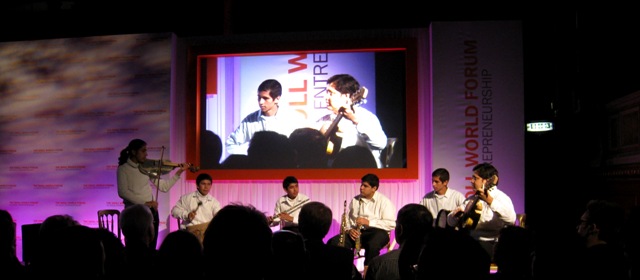
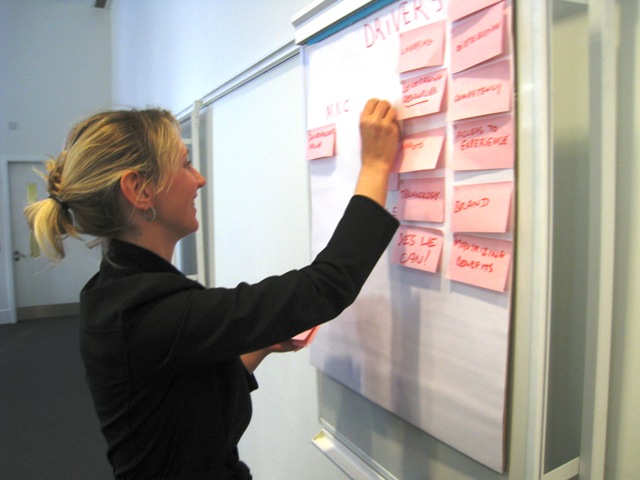
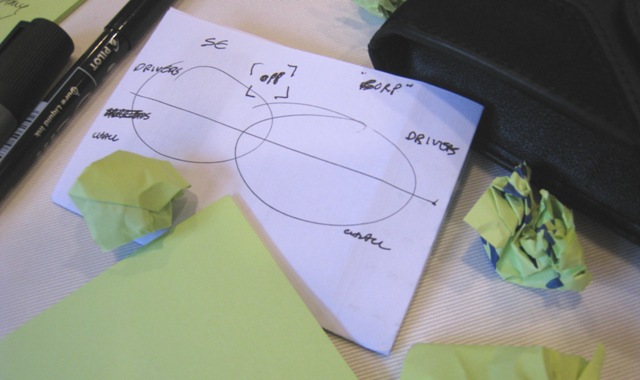
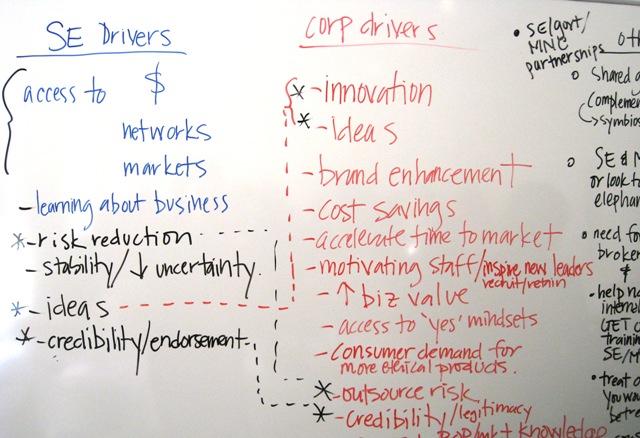
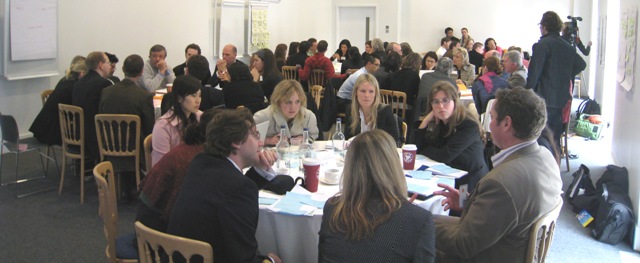
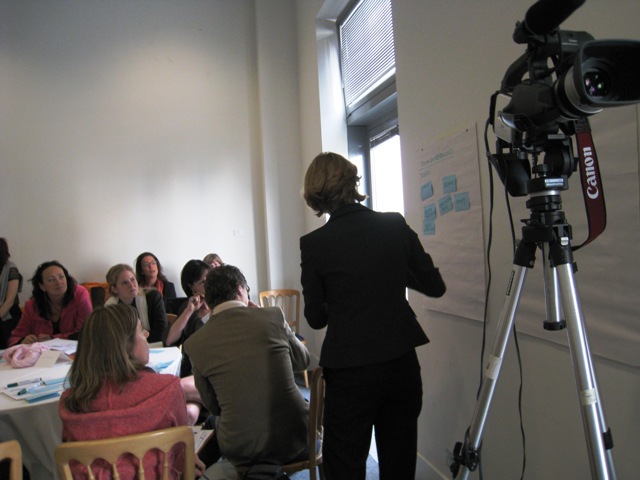
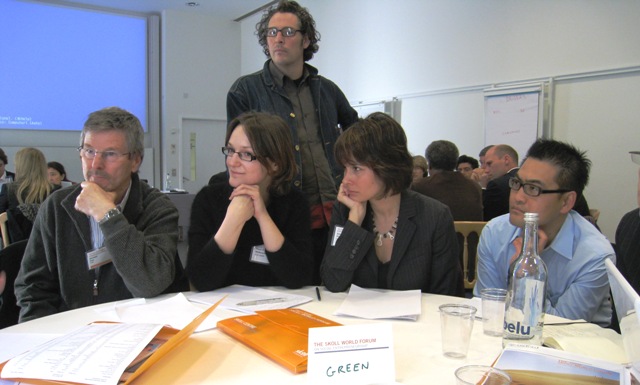
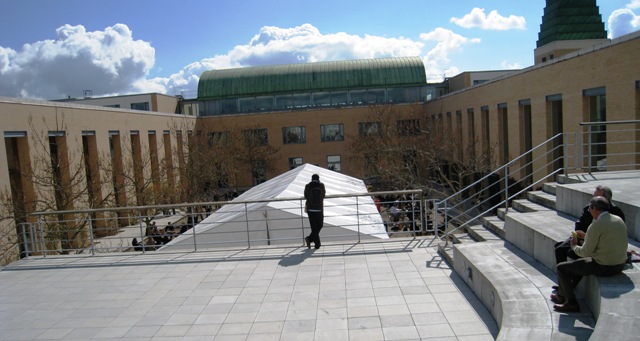

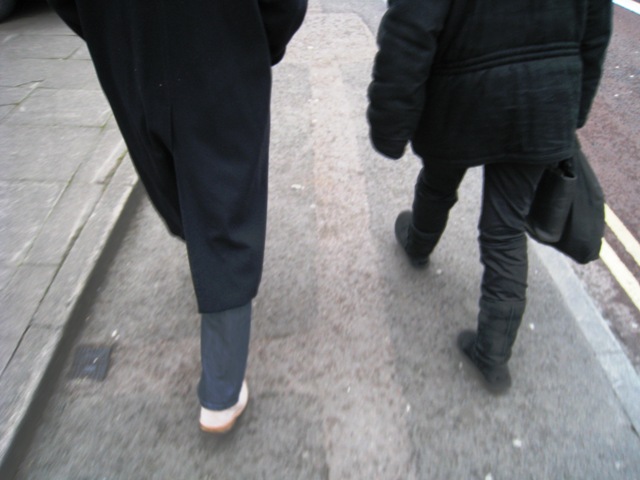 Geoff and Elaine
Geoff and Elaine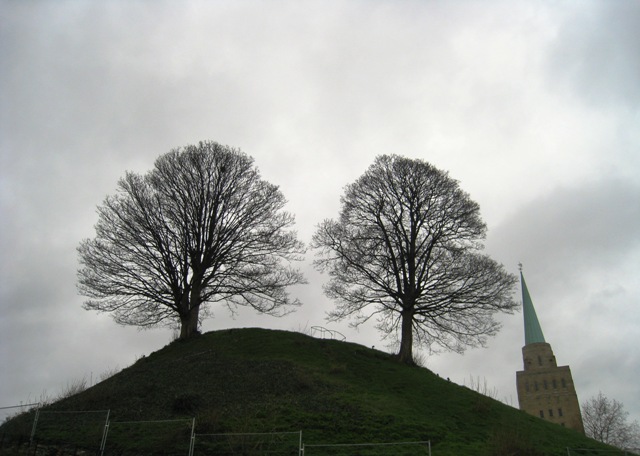 Near the castle
Near the castle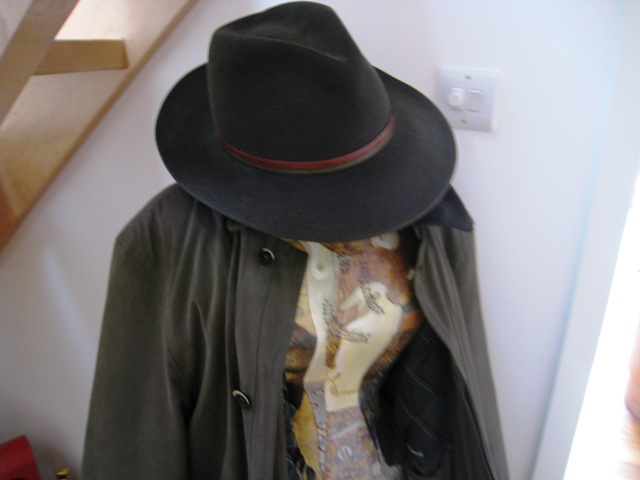 My hat and coat on Geoff’s Klimt mannequin
My hat and coat on Geoff’s Klimt mannequin